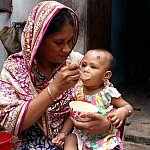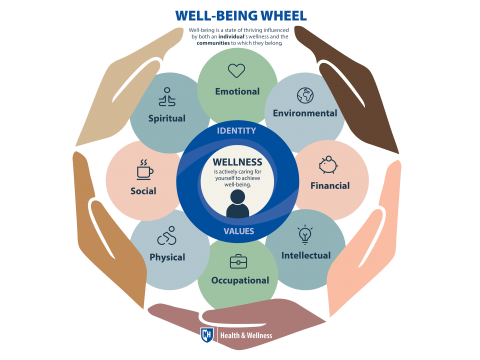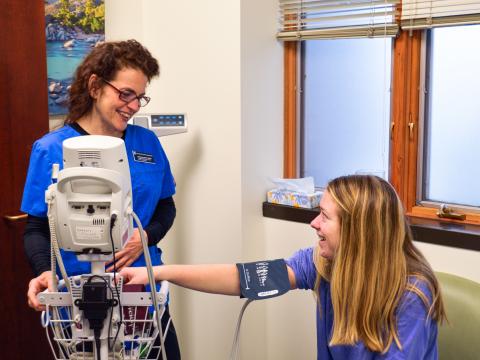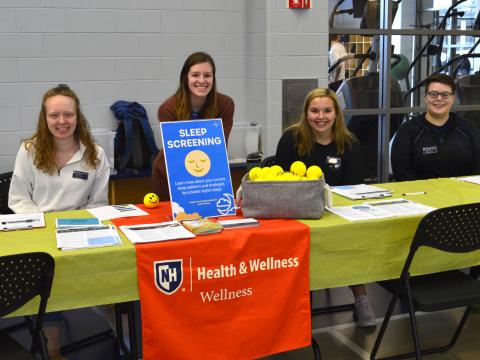77 interesting medical research topics for 2024
Last updated
25 November 2023
Reviewed by
Brittany Ferri, PhD, OTR/L
Medical research is the gateway to improved patient care and expanding our available treatment options. However, finding a relevant and compelling research topic can be challenging.
Use this article as a jumping-off point to select an interesting medical research topic for your next paper or clinical study.
- How to choose a medical research topic
When choosing a research topic , it’s essential to consider a couple of things. What topics interest you? What unanswered questions do you want to address?
During the decision-making and brainstorming process, here are a few helpful tips to help you pick the right medical research topic:

Focus on a particular field of study
The best medical research is specific to a particular area. Generalized studies are often too broad to produce meaningful results, so we advise picking a specific niche early in the process.
Maybe a certain topic interests you, or your industry knowledge reveals areas of need.
Look into commonly researched topics
Once you’ve chosen your research field, do some preliminary research. What have other academics done in their papers and projects?
From this list, you can focus on specific topics that interest you without accidentally creating a copycat project. This groundwork will also help you uncover any literature gaps—those may be beneficial areas for research.
Get curious and ask questions
Now you can get curious. Ask questions that start with why, how, or what. These questions are the starting point of your project design and will act as your guiding light throughout the process.
For example:
What impact does pollution have on children’s lung function in inner-city neighborhoods?
Why is pollution-based asthma on the rise?
How can we address pollution-induced asthma in young children?
- 77 medical research topics worth exploring in 2023
Need some research inspiration for your upcoming paper or clinical study? We’ve compiled a list of 77 topical and in-demand medical research ideas. Let’s take a look.
- Exciting new medical research topics
If you want to study cutting-edge topics, here are some exciting options:
COVID-19 and long COVID symptoms
Since 2020, COVID-19 has been a hot-button topic in medicine, along with the long-term symptoms in those with a history of COVID-19.
Examples of COVID-19-related research topics worth exploring include:
The long-term impact of COVID-19 on cardiac and respiratory health
COVID-19 vaccination rates
The evolution of COVID-19 symptoms over time
New variants and strains of the COVID-19 virus
Changes in social behavior and public health regulations amid COVID-19
Vaccinations
Finding ways to cure or reduce the disease burden of chronic infectious diseases is a crucial research area. Vaccination is a powerful option and a great topic to research.
Examples of vaccination-related research topics include:
mRNA vaccines for viral infections
Biomaterial vaccination capabilities
Vaccination rates based on location, ethnicity, or age
Public opinion about vaccination safety
Artificial tissues fabrication
With the need for donor organs increasing, finding ways to fabricate artificial bioactive tissues (and possibly organs) is a popular research area.
Examples of artificial tissue-related research topics you can study include:
The viability of artificially printed tissues
Tissue substrate and building block material studies
The ethics and efficacy of artificial tissue creation
- Medical research topics for medical students
For many medical students, research is a big driver for entering healthcare. If you’re a medical student looking for a research topic, here are some great ideas to work from:
Sleep disorders
Poor sleep quality is a growing problem, and it can significantly impact a person’s overall health.
Examples of sleep disorder-related research topics include:
How stress affects sleep quality
The prevalence and impact of insomnia on patients with mental health conditions
Possible triggers for sleep disorder development
The impact of poor sleep quality on psychological and physical health
How melatonin supplements impact sleep quality
Alzheimer’s and dementia
Cognitive conditions like dementia and Alzheimer’s disease are on the rise worldwide. They currently have no cure. As a result, research about these topics is in high demand.
Examples of dementia-related research topics you could explore include:
The prevalence of Alzheimer’s disease in a chosen population
Early onset symptoms of dementia
Possible triggers or causes of cognitive decline with age
Treatment options for dementia-like conditions
The mental and physical burden of caregiving for patients with dementia
- Lifestyle habits and public health
Modern lifestyles have profoundly impacted the average person’s daily habits, and plenty of interesting topics explore its effects.
Examples of lifestyle and public health-related research topics include:
The nutritional intake of college students
The impact of chronic work stress on overall health
The rise of upper back and neck pain from laptop use
Prevalence and cause of repetitive strain injuries (RSI)
- Controversial medical research paper topics
Medical research is a hotbed of controversial topics, content, and areas of study.
If you want to explore a more niche (and attention-grabbing) concept, here are some controversial medical research topics worth looking into:
The benefits and risks of medical cannabis
Depending on where you live, the legalization and use of cannabis for medical conditions is controversial for the general public and healthcare providers.
Examples of medical cannabis-related research topics that might grab your attention include:
The legalization process of medical cannabis
The impact of cannabis use on developmental milestones in youth users
Cannabis and mental health diagnoses
CBD’s impact on chronic pain
Prevalence of cannabis use in young people
The impact of maternal cannabis use on fetal development
Understanding how THC impacts cognitive function
Human genetics
The Human Genome Project identified, mapped, and sequenced all human DNA genes. Its completion in 2003 opened up a world of exciting and controversial studies in human genetics.
Examples of human genetics-related research topics worth delving into include:
Medical genetics and the incidence of genetic-based health disorders
Behavioral genetics differences between identical twins
Genetic risk factors for neurodegenerative disorders
Machine learning technologies for genetic research
Sexual health studies
Human sexuality and sexual health are important (yet often stigmatized) medical topics that need new research and analysis.
As a diverse field ranging from sexual orientation studies to sexual pathophysiology, examples of sexual health-related research topics include:
The incidence of sexually transmitted infections within a chosen population
Mental health conditions within the LGBTQIA+ community
The impact of untreated sexually transmitted infections
Access to safe sex resources (condoms, dental dams, etc.) in rural areas
- Health and wellness research topics
Human wellness and health are trendy topics in modern medicine as more people are interested in finding natural ways to live healthier lifestyles.
If this field of study interests you, here are some big topics in the wellness space:
Gluten sensitivity
Gluten allergies and intolerances have risen over the past few decades. If you’re interested in exploring this topic, your options range in severity from mild gastrointestinal symptoms to full-blown anaphylaxis.
Some examples of gluten sensitivity-related research topics include:
The pathophysiology and incidence of Celiac disease
Early onset symptoms of gluten intolerance
The prevalence of gluten allergies within a set population
Gluten allergies and the incidence of other gastrointestinal health conditions
Pollution and lung health
Living in large urban cities means regular exposure to high levels of pollutants.
As more people become interested in protecting their lung health, examples of impactful lung health and pollution-related research topics include:
The extent of pollution in densely packed urban areas
The prevalence of pollution-based asthma in a set population
Lung capacity and function in young people
The benefits and risks of steroid therapy for asthma
Pollution risks based on geographical location
Plant-based diets
Plant-based diets like vegan and paleo diets are emerging trends in healthcare due to their limited supporting research.
If you’re interested in learning more about the potential benefits or risks of holistic, diet-based medicine, examples of plant-based diet research topics to explore include:
Vegan and plant-based diets as part of disease management
Potential risks and benefits of specific plant-based diets
Plant-based diets and their impact on body mass index
The effect of diet and lifestyle on chronic disease management
Health supplements
Supplements are a multi-billion dollar industry. Many health-conscious people take supplements, including vitamins, minerals, herbal medicine, and more.
Examples of health supplement-related research topics worth investigating include:
Omega-3 fish oil safety and efficacy for cardiac patients
The benefits and risks of regular vitamin D supplementation
Health supplementation regulation and product quality
The impact of social influencer marketing on consumer supplement practices
Analyzing added ingredients in protein powders
- Healthcare research topics
Working within the healthcare industry means you have insider knowledge and opportunity. Maybe you’d like to research the overall system, administration, and inherent biases that disrupt access to quality care.
While these topics are essential to explore, it is important to note that these studies usually require approval and oversight from an Institutional Review Board (IRB). This ensures the study is ethical and does not harm any subjects.
For this reason, the IRB sets protocols that require additional planning, so consider this when mapping out your study’s timeline.
Here are some examples of trending healthcare research areas worth pursuing:
The pros and cons of electronic health records
The rise of electronic healthcare charting and records has forever changed how medical professionals and patients interact with their health data.
Examples of electronic health record-related research topics include:
The number of medication errors reported during a software switch
Nurse sentiment analysis of electronic charting practices
Ethical and legal studies into encrypting and storing personal health data
Inequities within healthcare access
Many barriers inhibit people from accessing the quality medical care they need. These issues result in health disparities and injustices.
Examples of research topics about health inequities include:
The impact of social determinants of health in a set population
Early and late-stage cancer stage diagnosis in urban vs. rural populations
Affordability of life-saving medications
Health insurance limitations and their impact on overall health
Diagnostic and treatment rates across ethnicities
People who belong to an ethnic minority are more likely to experience barriers and restrictions when trying to receive quality medical care. This is due to systemic healthcare racism and bias.
As a result, diagnostic and treatment rates in minority populations are a hot-button field of research. Examples of ethnicity-based research topics include:
Cancer biopsy rates in BIPOC women
The prevalence of diabetes in Indigenous communities
Access inequalities in women’s health preventative screenings
The prevalence of undiagnosed hypertension in Black populations
- Pharmaceutical research topics
Large pharmaceutical companies are incredibly interested in investing in research to learn more about potential cures and treatments for diseases.
If you’re interested in building a career in pharmaceutical research, here are a few examples of in-demand research topics:
Cancer treatment options
Clinical research is in high demand as pharmaceutical companies explore novel cancer treatment options outside of chemotherapy and radiation.
Examples of cancer treatment-related research topics include:
Stem cell therapy for cancer
Oncogenic gene dysregulation and its impact on disease
Cancer-causing viral agents and their risks
Treatment efficacy based on early vs. late-stage cancer diagnosis
Cancer vaccines and targeted therapies
Immunotherapy for cancer
Pain medication alternatives
Historically, opioid medications were the primary treatment for short- and long-term pain. But, with the opioid epidemic getting worse, the need for alternative pain medications has never been more urgent.
Examples of pain medication-related research topics include:
Opioid withdrawal symptoms and risks
Early signs of pain medication misuse
Anti-inflammatory medications for pain control
- Identify trends in your medical research with Dovetail
Are you interested in contributing life-changing research? Today’s medical research is part of the future of clinical patient care.
As your go-to resource for speedy and accurate data analysis , we are proud to partner with healthcare researchers to innovate and improve the future of healthcare.
Get started today
Go from raw data to valuable insights with a flexible research platform
Editor’s picks
Last updated: 21 December 2023
Last updated: 16 December 2023
Last updated: 6 October 2023
Last updated: 5 March 2024
Last updated: 25 November 2023
Last updated: 15 February 2024
Last updated: 11 March 2024
Last updated: 12 December 2023
Last updated: 6 March 2024
Last updated: 10 April 2023
Last updated: 20 December 2023
Latest articles
Related topics, log in or sign up.
Get started for free
Research Topics & Ideas: Healthcare
100+ Healthcare Research Topic Ideas To Fast-Track Your Project

Finding and choosing a strong research topic is the critical first step when it comes to crafting a high-quality dissertation, thesis or research project. If you’ve landed on this post, chances are you’re looking for a healthcare-related research topic , but aren’t sure where to start. Here, we’ll explore a variety of healthcare-related research ideas and topic thought-starters across a range of healthcare fields, including allopathic and alternative medicine, dentistry, physical therapy, optometry, pharmacology and public health.
NB – This is just the start…
The topic ideation and evaluation process has multiple steps . In this post, we’ll kickstart the process by sharing some research topic ideas within the healthcare domain. This is the starting point, but to develop a well-defined research topic, you’ll need to identify a clear and convincing research gap , along with a well-justified plan of action to fill that gap.
If you’re new to the oftentimes perplexing world of research, or if this is your first time undertaking a formal academic research project, be sure to check out our free dissertation mini-course. In it, we cover the process of writing a dissertation or thesis from start to end. Be sure to also sign up for our free webinar that explores how to find a high-quality research topic.
Overview: Healthcare Research Topics
- Allopathic medicine
- Alternative /complementary medicine
- Veterinary medicine
- Physical therapy/ rehab
- Optometry and ophthalmology
- Pharmacy and pharmacology
- Public health
- Examples of healthcare-related dissertations
Allopathic (Conventional) Medicine
- The effectiveness of telemedicine in remote elderly patient care
- The impact of stress on the immune system of cancer patients
- The effects of a plant-based diet on chronic diseases such as diabetes
- The use of AI in early cancer diagnosis and treatment
- The role of the gut microbiome in mental health conditions such as depression and anxiety
- The efficacy of mindfulness meditation in reducing chronic pain: A systematic review
- The benefits and drawbacks of electronic health records in a developing country
- The effects of environmental pollution on breast milk quality
- The use of personalized medicine in treating genetic disorders
- The impact of social determinants of health on chronic diseases in Asia
- The role of high-intensity interval training in improving cardiovascular health
- The efficacy of using probiotics for gut health in pregnant women
- The impact of poor sleep on the treatment of chronic illnesses
- The role of inflammation in the development of chronic diseases such as lupus
- The effectiveness of physiotherapy in pain control post-surgery

Topics & Ideas: Alternative Medicine
- The benefits of herbal medicine in treating young asthma patients
- The use of acupuncture in treating infertility in women over 40 years of age
- The effectiveness of homoeopathy in treating mental health disorders: A systematic review
- The role of aromatherapy in reducing stress and anxiety post-surgery
- The impact of mindfulness meditation on reducing high blood pressure
- The use of chiropractic therapy in treating back pain of pregnant women
- The efficacy of traditional Chinese medicine such as Shun-Qi-Tong-Xie (SQTX) in treating digestive disorders in China
- The impact of yoga on physical and mental health in adolescents
- The benefits of hydrotherapy in treating musculoskeletal disorders such as tendinitis
- The role of Reiki in promoting healing and relaxation post birth
- The effectiveness of naturopathy in treating skin conditions such as eczema
- The use of deep tissue massage therapy in reducing chronic pain in amputees
- The impact of tai chi on the treatment of anxiety and depression
- The benefits of reflexology in treating stress, anxiety and chronic fatigue
- The role of acupuncture in the prophylactic management of headaches and migraines

Topics & Ideas: Dentistry
- The impact of sugar consumption on the oral health of infants
- The use of digital dentistry in improving patient care: A systematic review
- The efficacy of orthodontic treatments in correcting bite problems in adults
- The role of dental hygiene in preventing gum disease in patients with dental bridges
- The impact of smoking on oral health and tobacco cessation support from UK dentists
- The benefits of dental implants in restoring missing teeth in adolescents
- The use of lasers in dental procedures such as root canals
- The efficacy of root canal treatment using high-frequency electric pulses in saving infected teeth
- The role of fluoride in promoting remineralization and slowing down demineralization
- The impact of stress-induced reflux on oral health
- The benefits of dental crowns in restoring damaged teeth in elderly patients
- The use of sedation dentistry in managing dental anxiety in children
- The efficacy of teeth whitening treatments in improving dental aesthetics in patients with braces
- The role of orthodontic appliances in improving well-being
- The impact of periodontal disease on overall health and chronic illnesses

Tops & Ideas: Veterinary Medicine
- The impact of nutrition on broiler chicken production
- The role of vaccines in disease prevention in horses
- The importance of parasite control in animal health in piggeries
- The impact of animal behaviour on welfare in the dairy industry
- The effects of environmental pollution on the health of cattle
- The role of veterinary technology such as MRI in animal care
- The importance of pain management in post-surgery health outcomes
- The impact of genetics on animal health and disease in layer chickens
- The effectiveness of alternative therapies in veterinary medicine: A systematic review
- The role of veterinary medicine in public health: A case study of the COVID-19 pandemic
- The impact of climate change on animal health and infectious diseases in animals
- The importance of animal welfare in veterinary medicine and sustainable agriculture
- The effects of the human-animal bond on canine health
- The role of veterinary medicine in conservation efforts: A case study of Rhinoceros poaching in Africa
- The impact of veterinary research of new vaccines on animal health
Topics & Ideas: Physical Therapy/Rehab
- The efficacy of aquatic therapy in improving joint mobility and strength in polio patients
- The impact of telerehabilitation on patient outcomes in Germany
- The effect of kinesiotaping on reducing knee pain and improving function in individuals with chronic pain
- A comparison of manual therapy and yoga exercise therapy in the management of low back pain
- The use of wearable technology in physical rehabilitation and the impact on patient adherence to a rehabilitation plan
- The impact of mindfulness-based interventions in physical therapy in adolescents
- The effects of resistance training on individuals with Parkinson’s disease
- The role of hydrotherapy in the management of fibromyalgia
- The impact of cognitive-behavioural therapy in physical rehabilitation for individuals with chronic pain
- The use of virtual reality in physical rehabilitation of sports injuries
- The effects of electrical stimulation on muscle function and strength in athletes
- The role of physical therapy in the management of stroke recovery: A systematic review
- The impact of pilates on mental health in individuals with depression
- The use of thermal modalities in physical therapy and its effectiveness in reducing pain and inflammation
- The effect of strength training on balance and gait in elderly patients
Topics & Ideas: Optometry & Opthalmology
- The impact of screen time on the vision and ocular health of children under the age of 5
- The effects of blue light exposure from digital devices on ocular health
- The role of dietary interventions, such as the intake of whole grains, in the management of age-related macular degeneration
- The use of telemedicine in optometry and ophthalmology in the UK
- The impact of myopia control interventions on African American children’s vision
- The use of contact lenses in the management of dry eye syndrome: different treatment options
- The effects of visual rehabilitation in individuals with traumatic brain injury
- The role of low vision rehabilitation in individuals with age-related vision loss: challenges and solutions
- The impact of environmental air pollution on ocular health
- The effectiveness of orthokeratology in myopia control compared to contact lenses
- The role of dietary supplements, such as omega-3 fatty acids, in ocular health
- The effects of ultraviolet radiation exposure from tanning beds on ocular health
- The impact of computer vision syndrome on long-term visual function
- The use of novel diagnostic tools in optometry and ophthalmology in developing countries
- The effects of virtual reality on visual perception and ocular health: an examination of dry eye syndrome and neurologic symptoms
Topics & Ideas: Pharmacy & Pharmacology
- The impact of medication adherence on patient outcomes in cystic fibrosis
- The use of personalized medicine in the management of chronic diseases such as Alzheimer’s disease
- The effects of pharmacogenomics on drug response and toxicity in cancer patients
- The role of pharmacists in the management of chronic pain in primary care
- The impact of drug-drug interactions on patient mental health outcomes
- The use of telepharmacy in healthcare: Present status and future potential
- The effects of herbal and dietary supplements on drug efficacy and toxicity
- The role of pharmacists in the management of type 1 diabetes
- The impact of medication errors on patient outcomes and satisfaction
- The use of technology in medication management in the USA
- The effects of smoking on drug metabolism and pharmacokinetics: A case study of clozapine
- Leveraging the role of pharmacists in preventing and managing opioid use disorder
- The impact of the opioid epidemic on public health in a developing country
- The use of biosimilars in the management of the skin condition psoriasis
- The effects of the Affordable Care Act on medication utilization and patient outcomes in African Americans
Topics & Ideas: Public Health
- The impact of the built environment and urbanisation on physical activity and obesity
- The effects of food insecurity on health outcomes in Zimbabwe
- The role of community-based participatory research in addressing health disparities
- The impact of social determinants of health, such as racism, on population health
- The effects of heat waves on public health
- The role of telehealth in addressing healthcare access and equity in South America
- The impact of gun violence on public health in South Africa
- The effects of chlorofluorocarbons air pollution on respiratory health
- The role of public health interventions in reducing health disparities in the USA
- The impact of the United States Affordable Care Act on access to healthcare and health outcomes
- The effects of water insecurity on health outcomes in the Middle East
- The role of community health workers in addressing healthcare access and equity in low-income countries
- The impact of mass incarceration on public health and behavioural health of a community
- The effects of floods on public health and healthcare systems
- The role of social media in public health communication and behaviour change in adolescents
Examples: Healthcare Dissertation & Theses
While the ideas we’ve presented above are a decent starting point for finding a healthcare-related research topic, they are fairly generic and non-specific. So, it helps to look at actual dissertations and theses to see how this all comes together.
Below, we’ve included a selection of research projects from various healthcare-related degree programs to help refine your thinking. These are actual dissertations and theses, written as part of Master’s and PhD-level programs, so they can provide some useful insight as to what a research topic looks like in practice.
- Improving Follow-Up Care for Homeless Populations in North County San Diego (Sanchez, 2021)
- On the Incentives of Medicare’s Hospital Reimbursement and an Examination of Exchangeability (Elzinga, 2016)
- Managing the healthcare crisis: the career narratives of nurses (Krueger, 2021)
- Methods for preventing central line-associated bloodstream infection in pediatric haematology-oncology patients: A systematic literature review (Balkan, 2020)
- Farms in Healthcare: Enhancing Knowledge, Sharing, and Collaboration (Garramone, 2019)
- When machine learning meets healthcare: towards knowledge incorporation in multimodal healthcare analytics (Yuan, 2020)
- Integrated behavioural healthcare: The future of rural mental health (Fox, 2019)
- Healthcare service use patterns among autistic adults: A systematic review with narrative synthesis (Gilmore, 2021)
- Mindfulness-Based Interventions: Combatting Burnout and Compassionate Fatigue among Mental Health Caregivers (Lundquist, 2022)
- Transgender and gender-diverse people’s perceptions of gender-inclusive healthcare access and associated hope for the future (Wille, 2021)
- Efficient Neural Network Synthesis and Its Application in Smart Healthcare (Hassantabar, 2022)
- The Experience of Female Veterans and Health-Seeking Behaviors (Switzer, 2022)
- Machine learning applications towards risk prediction and cost forecasting in healthcare (Singh, 2022)
- Does Variation in the Nursing Home Inspection Process Explain Disparity in Regulatory Outcomes? (Fox, 2020)
Looking at these titles, you can probably pick up that the research topics here are quite specific and narrowly-focused , compared to the generic ones presented earlier. This is an important thing to keep in mind as you develop your own research topic. That is to say, to create a top-notch research topic, you must be precise and target a specific context with specific variables of interest . In other words, you need to identify a clear, well-justified research gap.
Need more help?
If you’re still feeling a bit unsure about how to find a research topic for your healthcare dissertation or thesis, check out Topic Kickstarter service below.

You Might Also Like:

15 Comments
I need topics that will match the Msc program am running in healthcare research please
Hello Mabel,
I can help you with a good topic, kindly provide your email let’s have a good discussion on this.
Can you provide some research topics and ideas on Immunology?
Thank you to create new knowledge on research problem verse research topic
Help on problem statement on teen pregnancy
This post might be useful: https://gradcoach.com/research-problem-statement/
can you provide me with a research topic on healthcare related topics to a qqi level 5 student
Please can someone help me with research topics in public health ?
Hello I have requirement of Health related latest research issue/topics for my social media speeches. If possible pls share health issues , diagnosis, treatment.
I would like a topic thought around first-line support for Gender-Based Violence for survivors or one related to prevention of Gender-Based Violence
Please can I be helped with a master’s research topic in either chemical pathology or hematology or immunology? thanks
Can u please provide me with a research topic on occupational health and safety at the health sector
Good day kindly help provide me with Ph.D. Public health topics on Reproductive and Maternal Health, interventional studies on Health Education
may you assist me with a good easy healthcare administration study topic
May you assist me in finding a research topic on nutrition,physical activity and obesity. On the impact on children
Submit a Comment Cancel reply
Your email address will not be published. Required fields are marked *
Save my name, email, and website in this browser for the next time I comment.
- Print Friendly

Latest Issue
AI explodes
Taking the pulse of artificial intelligence in medicine
Recent Issues
- Health on a planet in crisis
- Real-world health How social factors make or break us
- Molecules of life Understanding the world within us
- The most mysterious organ Unlocking the secrets of the brain
- Closing the gap Addressing racial inequity in medicine
- All Articles
- The spice sellers’ secret
- ‘And yet, you try’
- Making sense of smell
- Before I go
- My favorite molecule
- View all Editors’ Picks
- Diversity, Equity & Inclusion
- Infectious Diseases
- View All Articles
What humans need to flourish
By Jennie Dusheck
Illustration by Christopher Silas Neal

Plug “wellness” into a search engine and you’ll get 405 million hits — and a lot of advice. Everyone, from genuine experts to click-bait writers, has an opinion about what’s good for us.
We are told to strengthen our willpower, but indulge ourselves; exercise, but not too much; go vegetarian, but eat more meat; develop our social network, but indulge in more “me time”; have great sex, but not too much; safeguard our financial health, but spend our money on travel that leaves memories; keep our minds active, but empty our minds and meditate; volunteer; forgive; and be grateful.
Related reading
Thinking big: The Stanford Prevention Research Cente r
“There’s been a lot of ‘expert speak’ on the concept of what it means to be well,” says associate professor of psychology and of medicine Catherine Heaney, PhD, who is leading a team at Stanford that has been working to define and measure wellness. “What there has been less of,” Heaney says, “is going to ordinary people and trying to get a sense of what being well means to them.”
People long for a sense of well-being. For thousands of years, everyone — from philosophers such as Aristotle, Epictetus and Buddha to the smooth-talkingest snake-oil salesmen — have tugged at the problem of what makes for a good life.
Researchers at UC-Berkeley’s Greater Good Science Center, for example, report six major underpinnings of happiness, one component of wellness: compassion, friendship, gratitude, forgiveness, exercise and mindfulness. Private foundations, including the Charles Koch Foundation, have taken an interest in funding well-being research. Even governments have gotten into the act. In 2008, a commission of economists assembled by Nicolas Sarkozy, the president of France, called for the development of broader measures of national well-being. Two years later, the United Kingdom did the same.
But what does it mean to be well? If we want to promote wellness for everyone, we have to, first, be able to say exactly what it is and, second, devise rigorous ways of measuring whether it is increasing or decreasing. Once we can measure it, we can begin to discover which factors promote it or diminish it. In this way, an ambitious Stanford project aims to tackle anew an age-old question.
The path to wellness
In 2014, the Stanford Prevention Research Center launched the WELL program — its ultimate goal, to improve the health and wellness of whole populations. WELL, the Wellness Living Laboratory, emphasizes research on overall health rather than the absence of disease. Funded by an unrestricted $10 million gift from the Amway Nutrilite Health Institute Wellness Fund, WELL proposes to identify what factors help people maintain health and wellness and to develop techniques to help people to change their lifestyles.
The center’s WELL for Life program is both an observational study and an interventional study. WELL will observe more than 30,000 people over many years and also test behavioral modification and other interventions to help people make health improvements such as quitting smoking, eating better or exercising more. The center’s health promotion arm, the Health Improvement Program , will enable the techniques to reach the wider population.
“This is an effort to change the world of medicine and health,” says John Ioannidis , MD, DSc, professor of medicine and of health research and policy, who directs the center. “It may sound very ambitious, but I see this as a way to refocus the key priorities of biomedical research.
“The vast majority of biomedical research has focused on treating diseases,” he says. “A much smaller part has focused on maintaining health and maybe some prevention efforts. But there’s very, very little research that has tried to look at the big picture — what makes people happy, resilient, creative, fully exploring their potential and living not only healthy, but more-than-healthy lives.”
Among the things the WELL team wants to know: Is wellness the same for everyone, or do factors like gender or age influence how we perceive it? For example, among young adults, wellness might revolve around finances, career and athleticism. But as we age, social connectedness and resilience to stress may become more important drivers of our sense of how well we feel.
“We want to determine not only what makes people feel that they have a higher level of wellness, but also interventions that would help it,” says Ioannidis. “So we want to ask not only what is the profile of someone who feels good about their life, but how can we make that profile better?
“And how can we intervene with simple means — things that we do in everyday life — not with drugs or devices or complex procedures in the hospital?”
“We know that a person’s ability to move more, to sit less and to eat healthfully are influenced by their environment. This includes social relationships, neighborhoods and public policy,” says Abby King , PhD, professor of medicine and of health research and policy, who studies what’s needed for healthy behavior change.
“It’s about helping people make connections between their own pursuit of well-being and their health,” explains Heaney. Maybe for some people, making a better life for their children is more motivating than reducing their risk of a heart attack in the distant future, she says.
Once a doctor knows what motivates patients, it may be possible to harness that in the service of patients’ well-being and physical health.
During the first five years, the 30,000 participants — 10,000 each in China, Taiwan and the United States — will supply mountains of personal health information, ranging from general health and lifestyle information to genetic and other biological markers, says Sandra Winter , PhD, director of WELL. And it’s likely WELL will expand to other countries in the future.
Each of the thousands of participants will periodically answer scores of questions such as, “During the last two weeks, did your diet, physical activity and sleep habits influence your well-being?” or “How confident are you that you can bounce back quickly after hard times?”
Listening well
How do you ask people meaningful questions about a concept as fuzzy as wellness? To create an accurate vocabulary of wellness, trained interviewers sat down with more than 100 people from Santa Clara County and listened to their stories. Demographically representative of this diverse area, the 100 included men and women, young and old, and a variety of ethnic groups. Similar efforts took place in China and Taiwan.
Tia Rich, PhD, WELL senior research assistant, interviewed half of the Santa Clara County participants. She asked them to talk about a time of peak wellness, a time of low wellness and, finally, their current state. In each case, she also asked them to describe all aspects of their life that they wanted to share regarding each level of wellness.
And then Rich listened. The conversations lasted anywhere from 30 minutes to two hours. “The process of listening to 50 people share their life stories was extremely meaningful. It was really an honor to be trusted in that way,” she says.
The domains of wellness
After transcribing the Santa Clara County interviews and sorting the responses almost line by line into categories, Heaney’s team identified 10 domains of wellness that people most commonly mentioned:
• Social connectedness • Lifestyle behaviors • Stress and resilience • Emotional health • Physical health • Meaning and purpose • Sense of self • Finances • Spirituality or religiosity • Exploration and creativity
For these interviewees, having a social network was the single largest driver of wellness. Being integrated into a social network, having opportunities to receive support and companionship, feeling loved and feeling a sense of belonging, and also having others in your social network doing well is what most enhances wellness, said the interviewees. As one put it, “If my family is doing well, I will be doing well.”
But having a social network can be as much a burden as a comfort. “When people in your social networks are not doing well or when they act in ways that are socially undermining,” says Heaney, “that detracts from our sense of well-being.”
It’s important to manage our social connections so they contribute more than they detract. “It’s like the old saying,” she laughs, “When you’re a parent you can never be happier than your least-happy child.” So, ultimately, we need to find ways to support those we love while remaining somewhat stoic about their problems, so our own well-being doesn’t decline, too.
The second major domain was lifestyle behaviors such as eating well and getting plenty of sleep and exercise. People looked back on times when they were engaging in healthy behaviors as times of great well-being, says Heaney.
As one interviewee reported, “I’d been outside all summer long just doing labor. I mean, sometimes you dig ditches, and sometimes you’re pruning Mrs. McGillicuddy’s pansies, whatever it is, you’re outside all day long, which really nourishes the animal, I’m here to say. And I remember my mother, for some reason we were driving along, and I said, ‘I’m at the peak of my physical health.’”
Wellness and resilience
The team also found that stress and resilience to stress were important factors in wellness. Major changes, such as a divorce or moving from another country, were especially likely to induce stress. But participants also spoke with pleasure about how well they had coped during a difficult time.
One interviewee said, “Even the worst of times, even the most difficult of times, there’s always been light and strength, and that is because I have a very rich inner life. And in the end, I have hope.”
Some people can adapt to the most dire of circumstances. In her book The Pursuit of Happiness , Carol Graham, PhD, an economist and a senior fellow at the Brookings Institution who studies happiness and well-being, reports that even though poor people around the world are less happy than the wealthy, some of the poorest often report high well-being.
Even those with serious illness may report a sense of well-being. “I was surprised by the extent to which people did not talk about illness,” Heaney says. People who had cancer might not even mention it in the context of their well-being. “Having an illness or not having illness was not what was important. What was more important was the experience of it and the extent to which a person felt like they were managing or coping.
“People would actually say, ‘Yeah, you know, a time of particularly high well-being for me was when I was diagnosed with heart disease,’ ” says Heaney. “And you’re like, ‘What?’ ” But they would then go on to say, ‘Yeah, because I learned how resilient I am. I learned how strong I am. I have come out of that a better person and I learned what matters to me.’ ”
The last five domains, which came up less often, included having a sense of meaning and purpose, which could encompass accomplishments or, alternatively, a sense of why we are here; a sense of self (a measure of confidence and self-esteem); financial comfort; spirituality; and, finally, exploring (or pioneering) and creativity.
Building the questionnaire
Using the 10 domains, Heaney and her team wrote 72 questions designed to probe people’s experiences of wellness. The questionnaire is already online for a small test group of WELL participants, and ultimately it will be available for all 10,000 U.S. participants.
Participants are asked, for example:
During the last two weeks, how often did you feel… …that you were very capable? …that you were interested in your daily activities?
To get at resilience, Heaney and her team included questions such as:
How confident are you that you can… . ..bounce back quickly after hard times? …adapt to change? …deal with whatever comes your way? …see the humorous side of problems?
The 72 questions have been translated for use in the China and Taiwan arms of the WELL study, field tested to make sure they have the same meaning in all three sites and modified to adjust for cultural or language differences. Additional modules may be added in each country to address determinants of wellness that are specific to that culture.
While the questions themselves might vary a little from site to site, it remains to be seen how different the answers will be.
More broadly, each of the three WELL for Life sites will look a bit different, says Winter. “In the Bay Area, we’ve really been focusing on an online registry. In China, we are using a more traditional study approach in which people are going to come in in person, and we’ll gather physiological data such as BMI, height, weight, grip strength, plus blood samples and a battery of survey questions. And just as in Santa Clara, we’ll be following these people over time.” Meanwhile, the Taiwan arm of the study will add a biobank of tissue samples collected from all 10,000 participants.
Ioannidis says these tissues may reveal biological markers for wellness. “Just as we can monitor diabetes by looking at blood sugar levels,” he says, “is there some wellness biomarker that can tell us something about how one feels about one’s life? Are there biomarkers that indicate levels of wellness and that change as people’s levels of wellness increase or decrease?
“Of course, this is exploratory,” he says. “I cannot promise that we will have hundreds of biomarkers explaining everything about wellness, but it’s possible that some of them will be of interest.”
That would be a huge step forward.
How confident are you that you can… …overcome obstacles? …stay focused under pressure? …think of yourself as a strong and resilient person? …manage any unpleasant feelings that you might have? …not get disheartened by setbacks?
In a few years, the WELL project team may be able to help us answer questions like these with “very confident.”
Jennie Dusheck
Jennie Dusheck is a science writer for the medical school's Office of Communication & Public Affairs. Email her at [email protected] .
Email the author
- Bipolar Disorder
- Therapy Center
- When To See a Therapist
- Types of Therapy
- Best Online Therapy
- Best Couples Therapy
- Best Family Therapy
- Managing Stress
- Sleep and Dreaming
- Understanding Emotions
- Self-Improvement
- Healthy Relationships
- Student Resources
- Personality Types
- Guided Meditations
- Verywell Mind Insights
- 2023 Verywell Mind 25
- Mental Health in the Classroom
- Editorial Process
- Meet Our Review Board
- Crisis Support
Health Psychology Topics
Ideas for Your Next Health Psychology Paper or Project
Kendra Cherry, MS, is a psychosocial rehabilitation specialist, psychology educator, and author of the "Everything Psychology Book."
:max_bytes(150000):strip_icc():format(webp)/IMG_9791-89504ab694d54b66bbd72cb84ffb860e.jpg)
Emily is a board-certified science editor who has worked with top digital publishing brands like Voices for Biodiversity, Study.com, GoodTherapy, Vox, and Verywell.
:max_bytes(150000):strip_icc():format(webp)/Emily-Swaim-1000-0f3197de18f74329aeffb690a177160c.jpg)
Heath psychology topics can look at a range of issues related to health, illness, and healthcare. It may include such things as eating disorders, weight management, diet, exercise, stress coping, women's health, and more.
Health psychology, also known as medical psychology or behavioral medicine, focuses on how biology, psychology, behavior, and social factors influence health and well-being. It's a diverse and rich field worth exploring if you're studying to be a health professional.
At a Glance
Health psychology is a field focused on promoting wellness and understanding how physical health and illness impact mental well-being. Health psychology topics you might want to explore include stress management, behavior change, weight management, nutrition, eating disorders, exercise, illness prevention, managing chronic conditions, and much more.
Health Psychology Research and Paper Topic Ideas
The next time you're looking for a research topic for your studies and would like to focus on health psychology , consider the following suggestions. These can inspire an experiment , a research paper, or any other type of class project.
Exercise and Eating Behavior Topic Ideas
Health behaviors, including exercise and diet, are a major topic within the field of health psychology. Some areas you might opt to explore include:
Weight Management Strategies
Explore some of the psychological strategies that can help people stick to a diet and exercise program. Is there any singular strategy that is more effective than others?
Eating Disorders
Analyze how media depictions of "ideal" bodies influence anorexia and bulimia. Is there a link between exposure to these images and eating disorders?
Social Media and Body Image
Look at how exposure to social media affects body image. Do young people who spend more time on social media have worse body image than those who use these apps and websites less frequently? What type of content has the most significant impact on body image?
Family Health and Safety Topic Ideas
Factors that influence family health and safety are another health psychology topic you might consider. Examples include:
Safe Sleep Practices
Explore how increased public awareness of infant safety, such as placing an infant on their back to sleep, or removing pillows and other objects from the sleeping area, have influenced the occurrence of SIDS, or "crib death." Has the number of SIDS-related deaths gone down? Why do some parents ignore these sleep safety guidelines?
Childhood Immunizations
Assess current approaches to childhood immunizations. Why do some parents choose not to immunize their children? How does this impact public health? What can health professionals do to increase the likelihood that kids are immunized?
Teen Suicide
Explore the factors that contribute to teen suicide . How effective are suicide prevention programs? Which strategies are the most effective?
Effects of Caregiving
Look at the emotional, social, and psychological impact of caregiving, such as taking care of an aging parent, a family member with AIDS, or a spouse diagnosed with Alzheimer's.
Public Health Topic Ideas
Individual health is important, but health psychology are also interested in learning more about things that can have an effect on overall public health. Some examples include:>
Trauma Coping
What can mental health and medical professionals do to help people cope in the immediate aftermath of a disaster? Are there any strategies that result in better long-term outcomes?
PTSD in Veterans
Research the prevalence of post-traumatic stress disorder (PTSD) among veterans. What factors contribute to whether an individual veteran experiences PTSD? Which mental health interventions are most effective in treating this disorder?
Coping with Chronic Pain
Evaluate how stress management techniques and relaxation methods can help patients experiencing chronic pain. How effective are these tactics? How do they compare to traditional pharmacological approaches to pain management?
Smoking Cessation
Compare and contrast different approaches to quitting smoking. Which strategies are the most effective?
Safety Equipment Use
Look at different techniques that can be used to increase the likelihood that people will use safety equipment such as seat belts and bicycle helmets. What type of public safety program would you devise to encourage the use of these products?
A few areas you might want to explore in your research include exercise, eating behaviors, family health, safety, and public health. Such areas provide a wealth of health psychology topics to choose from.
More Health Psychology Topics
The above are just a few specific topics and questions you might want to explore, but there are also many other areas you might consider. Some broad health psychology topics that might also inspire your research include:
- Biological factors that influence health
- Social and environmental factors that impact health (i.e., social determinants of health)
- Psychological factors that influence health
- How patients cope with disease and illness
- Treatment adherence (i.e., why some people don't follow their treatment plan)
- Ways to change bad habits
- How to develop good habits
- Techniques for controlling pain
- How to handle stress
- Factors that influence mental well-being
- How to improve access to healthcare resources
- Why people experience emotional eating
- How emotions impact health behaviors
- How discrimination affects health
- How to improve doctor-patient communication
Tips Before You Get Started
Before you begin, make sure the topic you're interested in matches the specific assignment. Even if your instructor doesn't require you to get approval for your intended topic, it's always a good idea to run it by them before you delve too deeply into your research.
Of course, make sure you've chosen a subject that you know you'll be able to find appropriate sources for. You wouldn't want to commit to a project only to find insufficient existing information to work with. Again, input from your instructor can prevent you from wasting time on a topic that offers little to go on.
What This Means For You
Health psychology focuses on understanding how social, environmental, biological, psychological, and cultural factors influence health and illness. If you are looking for a great topic to explore, consider picking a broad area of interest (like stress, exercise, safety, illness, etc.), and then narrowing down your focus to more specific questions of interest.
Ian Lubek, Monica Ghabrial, Naomi Ennis, et al. Notes on the development of health psychology and behavioral medicine in the United States. J Health Psychol. 2018;23(3):492-505. doi:10.1177/1359105318755156
Sanderson CA. Health Psychology: Understanding the Mind-Body Connection . SAGE Publications.
Naumann E, Tuschen-Caffier B, Voderholzer U, Schäfer J, Svaldi J. Effects of emotional acceptance and rumination on media-induced body dissatisfaction in anorexia and bulimia nervosa . J Psychiatr Res . 2016;82:119-125. doi:10.1016/j.jpsychires.2016.07.021
McNeil DA, Mueller M, MacDonald S, et al. Maternal perceptions of childhood vaccination: Explanations of reasons for and against vaccination. BMC Public Health . 2019;19(1):49. doi:10.1186/s12889-018-6338-0
Shen S, Cheng C, Yang J, Yang S. Visualized analysis of developing trends and hot topics in natural disaster research. PLoS One . 2018;13(1):e0191250. doi:10.1371/journal.pone.0191250
Renshaw KD. An integrated model of risk and protective factors for post-deployment PTSD symptoms in OEF/OIF era combat veterans. J Affect Disord . 2011;128(3):321-326. doi:10.1016/j.jad.2010.07.022
American Psychological Association. Health psychology promotes wellness .
By Kendra Cherry, MSEd Kendra Cherry, MS, is a psychosocial rehabilitation specialist, psychology educator, and author of the "Everything Psychology Book."
- U.S. Department of Health & Human Services

- Virtual Tour
- Staff Directory
- En Español
You are here
Nih research matters.
December 22, 2021
2021 Research Highlights — Human Health Advances
Disease prevention, diagnosis, and treatment.
With NIH support, scientists across the United States and around the world conduct wide-ranging research to discover ways to enhance health, lengthen life, and reduce illness and disability. Groundbreaking NIH-funded research often receives top scientific honors. In 2021, these honors included Nobel Prizes to five NIH-supported scientists . Here’s just a small sample of the NIH-supported research accomplishments in 2021.
Printer-friendly version of full 2021 NIH Research Highlights
20210309-covid.jpg

COVID-19 spread and vaccines
NIH researchers continued to make scientific breakthroughs to help control the COVID-19 pandemic. Studies of spread suggested strategies for controlling infections . Research also revealed who was most at risk of becoming severely ill from COVID-19: nearly two-thirds of COVID-19 hospitalizations in the U.S. were due to obesity, diabetes, hypertension, and heart failure . Wide-spread vaccine rollouts slowed the spread of SARS-CoV-2, the virus that causes COVID-19. The Moderna COVID-19 vaccine, developed with NIH, proved to be 94% effective against symptomatic COVID-19 . Six months later, people who had been vaccinated still showed signs of immunity . COVID-19 vaccines saved an estimated 140,000 lives through May 2021, and hundreds of thousands more have been saved since. As SARS-CoV-2 mutated and new variants became common, scientists conducted studies on booster doses of vaccine. These suggested that COVID-19 boosters not only lengthen immunity but help broaden and strengthen the immune response to protect against a wide variety of variants.
20210316-diabetes.jpg

Drug delays type 1 diabetes onset
In type 1 diabetes, the immune system’s T cells attack the insulin-producing beta cells in the pancreas. Those affected need insulin treatment to survive. In a clinical trial of people at risk of developing type 1 diabetes (with a median age of 13), the drug teplizumab delayed disease onset and improved insulin production. The findings support the use of the drug for delaying or preventing type 1 diabetes.
20210727-gene.jpg

Gene therapy effective in human trials
Advances in gene therapy are showing promise for people with life-threatening conditions. Using gene therapy, researchers were able to introduce a healthy copy of a disease-causing gene and restore immune system function in children with a rare genetic disorder called severe combined immunodeficiency, or SCID. In another study, researchers safely delivered gene therapy to the brain to treat a debilitating neurological disease for which there are no effective treatments.
20210209-diet-thumb.jpg

Low-fat diet compared to low-carb diet
There has been a great deal of debate over what aspects of our diets affect weight control. A carefully controlled study found that people ate fewer calories per day and lost more weight on a plant-based, low-fat diet compared to an animal-based, low-carb diet. However, the low-fat diet led to higher insulin and blood sugar levels, which can be risk factors for heart disease. The findings reveal how restricting dietary carbohydrates or fats may impact health.
20210420-malnutrition-thumb.jpg

Supplement targets gut microbes to boost growth in malnourished children
The effects of childhood malnutrition can cause lifelong health problems. Researchers found that a supplement designed to repair the gut microbiome—the bacteria, viruses, and fungi in the digestive system—helped malnourished children. Those given the supplement gained more weight than children on a standard nutritional supplement. The experimental supplement also raised levels of proteins in the blood associated with bone, cartilage, and brain health.
202101004-kidney.jpg

Test may help reduce racial disparities in kidney disease
A common blood test for kidney function measures a protein called creatinine. But Black Americans generally have higher amounts of creatinine. As a result, doctors take race into account when testing for kidney disease. A study showed that measuring levels of another protein called cystatin C can accurately estimate kidney function without needing to take race into account. A race-blind method for estimating kidney function could more effectively identify chronic kidney disease.
20210713-malaria.jpg

Malaria vaccines provide strong and lasting immunity
Malaria is caused by parasites transmitted by infected mosquitoes. Researchers developed a vaccine approach that uses live sporozoites, the infectious form of the malaria parasite, along with a drug that kills the parasite. In a small trial, the approach led to broad, long-lasting protection against malaria. The strategy is now being tested in real-world conditions in a Phase 2 clinical trial in Mali.
20210727-speak-screenshot.jpg

Devices in the brain help paralyzed people communicate
Technological advances are enabling people who have lost the ability to move or speak to communicate again. Scientists developed a device to decode brain activity into words in real time , allowing a person with paralysis to communicate in complete sentences. Another system quickly translates brain signals for imagined handwriting into text . These systems could make communication for people with severe paralysis more natural and efficient.
2021 Research Highlights — Promising Medical Findings >>
Connect with Us
- More Social Media from NIH
Here’s how you know
- U.S. Department of Health and Human Services
- National Institutes of Health
NCCIH Research Blog
New research networks to explore the science of emotional well-being.
February 1, 2021

Emmeline Edwards , Ph.D.
Division of Extramural Research
National Center for Complementary and Integrative Health
View biographical sketch

Merav Sabri , Ph.D.
Program Director
Basic and Mechanistic Research in Complementary and Integrative Health Branch
While the world faces a multitude of challenges during the COVID-19 pandemic, many experts are seeing a concurrent increase in mental health concerns. We are pleased to tell you that the National Institutes of Health (NIH) is funding five new research networks at major academic institutions around the country to further research on emotional well-being. Emotional well-being has been defined as an overall positive state of one’s emotions, life satisfaction, sense of meaning and purpose, and ability to pursue self-defined goals. 1
Upon ramping up, the NIH-funded research networks will engage in meetings, conferences, small-scale pilot research, multidisciplinary cross training, and information dissemination. This effort represents a unique opportunity to (1) increase understanding of the fundamental constituents of emotional well-being; (2) examine these constituents as potential intervention targets or outcomes; (3) refine and implement science-based intervention strategies to enhance aspects of emotional well-being; and (4) develop measurement methodologies to optimize and scale up well-being interventions.
With funding provided by the National Center for Complementary and Integrative Health (NCCIH) and the National Institute on Aging and cofunding for select networks from the Eunice Kennedy Shriver National Institute of Child Health and Human Development, the NIH Office of Behavioral and Social Sciences Research, and the NIH Office of Disease Prevention, it is evident that interest in emotional well-being research spans multiple disciplines. As such, we are interested in seeing what emotional well-being looks like in different subpopulations and at varying developmental stages. Furthermore, the networks are spread across the United States, providing needed geographic diversity.
The launch of these networks follows an NIH roundtable discussion in April 2018, Emotional Well-Being: Emerging Insights and Questions for Future Research , which led to a request for applications that focused on developing resources to refine and test key concepts that will advance and further support the study of emotional well-being. In December 2019, NCCIH took part in the issuance of a request for applications, Emotional Well-Being: High-Priority Research Networks , which utilized the U24 cooperative agreement funding mechanism. The U24 is a resource development and planning mechanism in which interdisciplinary teams form to grow and develop research on specific priority areas.
As we have previously written , the field of emotional well-being aligns with stakeholder and government interest in improving wellness and increasing resilience. Although the idea to expand research into emotional well-being came about prior to the COVID-19 pandemic, we believe it has a special resonance now.
To be informed of future funding opportunities and advances in research, consider subscribing to the NCCIH Update .
1 Community Translational Science Team. Building a Public Health Model for Promoting Emotional Well-Being. Los Angeles: University of California Los Angeles. 2016.
.header_greentext{color:green!important;font-size:24px!important;font-weight:500!important;}.header_bluetext{color:blue!important;font-size:18px!important;font-weight:500!important;}.header_redtext{color:red!important;font-size:28px!important;font-weight:500!important;}.header_darkred{color:#803d2f!important;font-size:28px!important;font-weight:500!important;}.header_purpletext{color:purple!important;font-size:31px!important;font-weight:500!important;}.header_yellowtext{color:yellow!important;font-size:20px!important;font-weight:500!important;}.header_blacktext{color:black!important;font-size:22px!important;font-weight:500!important;}.header_whitetext{color:white!important;font-size:22px!important;font-weight:500!important;}.header_darkred{color:#803d2f!important;}.Green_Header{color:green!important;font-size:24px!important;font-weight:500!important;}.Blue_Header{color:blue!important;font-size:18px!important;font-weight:500!important;}.Red_Header{color:red!important;font-size:28px!important;font-weight:500!important;}.Purple_Header{color:purple!important;font-size:31px!important;font-weight:500!important;}.Yellow_Header{color:yellow!important;font-size:20px!important;font-weight:500!important;}.Black_Header{color:black!important;font-size:22px!important;font-weight:500!important;}.White_Header{color:white!important;font-size:22px!important;font-weight:500!important;} For More Information
- Wellness and Well-Being
Tags: Notice of Funding Opportunity (NOFO) , NCCIH Research
Comments are now closed for this post.
Subscribe to the Blog
Get New Blog Posts by Email
Search the Blog
May Council Meeting To Feature NCCIH’s Research Portfolio and Strategic Planning Martina Schmidt, Ph.D. April 10, 2024
Leveling Up: Using Multilevel Interventions To Address Whole Person Health Jennifer Baumgartner, Ph.D. March 25, 2024
Change Is in the Air for RPG and NRSA Grants Jessica McKlveen, Ph.D. March 1, 2024
Grant and Research Policies (33)
Grant Application Review (17)
Grant Writing (31)
Intramural Research Program (1)
Lectures (20)
Meetings (68)
Military and Veterans (5)
Mind and Body Practices (15)
Natural Products (27)
NCCIH Advisory Council (21)
NCCIH Research (72)
NCCIH Staff News (13)
NIH News (12)
Notice of Funding Opportunity (NOFO) (67)
Research Priorities (44)
Research Results (5)
Research Training (26)
Strategic Plans (13)
Video Blog Posts (3)
NIH Director's Blog
NIGMS Feedback Loop Blog
Inside NIA: A Blog for Researchers
NIMH Director’s Blog
NIDA Directors’ Blog
I Am Intramural
Frequently Asked Questions (FAQs)
Comment Policy
Privacy Policy

Search Utah State University:
Health and wellness research articles.

Is Your Child Hydrated?
Did you know that over 75% of children do not meet the recommended fluid intake each day (Drewnowski et al., 2013)? Water is the best fluid children can drink. It is essential for all functions in the body to work at their ideal level, yet most children d...

Skills to Support Mental Health in Uncertain Times Part 3: Being Engaged
A great way to increase your life satisfaction during difficult times is by actively engaging in what matters most to you (Flowers et al., 2023; Wąsowicz et al., 2021). By engaging in actions that matter to you, you can live the life you value rather than...

Skills to Support Mental Health in Uncertain Times Part 2: Cultivating Awareness
Uncertainty and worry can be a common struggle for many people, whether they are uncertain about their jobs, health, or relationships. Events such as COVID-19 and the recent wars in Israel and Ukraine increase the stress and uncertainty many people face....

Skills to Support Mental Health in Uncertain Times Part 1: Being Open
Even now, several years since the onset of the COVID-19 pandemic, many individuals and families are still dealing with the impacts of the pandemic and its closures (De & Sun, 2023; Kohls et al., 2023; Wolf & Schmitz, 2023). The pandemic’s long-lasting imp...

Benefits of Exercise on Mind Function
Regular physical activity has been associated with emotional and mental health well-being (Puett et al., 2014). Regular exercise is important for the development and well-being of the brain because it helps to train the brain and keep the brain healthy.

The Benefits of Including Kids in the Kitchen
Learning to cook is an essential life skill everyone should strive to develop at some point in their life. Involving kids in the kitchen is a great way to kickstart that learning from a young age and comes with numerous benefits.

Community Paramedicine: A New Approach to Health in Rural Communities
The community paramedicine (CP) concept is becoming widely used in rural communities to assist in maintaining and improving health across economic and geographic disparities. This model utilizes highly trained emergency medical service (EMS) professionals...

Debunking COVID-19 Myths in Utah
As the cold weather approaches and kids return to school and people start spending more time indoors, it is important to get your COVID-19 vaccine or booster. If you are hesitant, read through some common myths we identified from a survey of over 500 adul...

Nutrition and Chronic Pain
For those who struggle with chronic pain, sound dietary advice is essential to improve intake and ultimately decrease pain (Arranz et al., 2010).

Managing Stress for Agricultural Producers: Learning to “Unhook”
All of us experience stress, and with it, unpleasant, uncomfortable, or distressing thoughts. Much of the time, people are able to manage the stress—we refocus on our lives and move on. At other times, however, stressful thoughts really impact people’s mo...

Utahns' Wellbeing and Mental Health by Rural-Urban Location
Those living in the rural U.S. face some unique mental health challenges. Approximately one-fifth of the U.S. population live in rural areas, and about one-fifth of those living in rural areas have some form of mental illness.

Utahns' Wellbeing and Mental Health: Insights From The Utah Wellbeing Survey
People in the United States face unique challenges today, including poor mental health. According to the Department of Health and Human Services, the U.S. is currently facing a mental health crisis (2023).
- Frontiers in Physiology
- Skin Physiology
- Research Topics
Light and Skin: for Health and Wellness
Total Downloads
Total Views and Downloads
About this Research Topic
Light-based techniques have transformed the fields of diagnostics and therapy, enabling non- and minimally-invasive procedures, the precise and high resolution targeting of tissues, and allowing deeper insights into biological processes. The last decade has experienced a profound growth in procedures relying ...
Keywords : Human skin, light-based techniques, light, optical radiation, chromophores, photoreceptor, ultraviolet, visible light, infrared, skin health, cutaneous applications of light, skin microbiota
Important Note : All contributions to this Research Topic must be within the scope of the section and journal to which they are submitted, as defined in their mission statements. Frontiers reserves the right to guide an out-of-scope manuscript to a more suitable section or journal at any stage of peer review.
Topic Editors
Topic coordinators, recent articles, submission deadlines, participating journals.
Manuscripts can be submitted to this Research Topic via the following journals:
total views
- Demographics
No records found
total views article views downloads topic views
Top countries
Top referring sites, about frontiers research topics.
With their unique mixes of varied contributions from Original Research to Review Articles, Research Topics unify the most influential researchers, the latest key findings and historical advances in a hot research area! Find out more on how to host your own Frontiers Research Topic or contribute to one as an author.

ALL ARTICLES IN
Health news: latest research, top stories, trending topics.
Stay up to date with the latest medical and health news that matter most to you and your family. Have a question? Got feedback? Contact Us
Activist Groups Challenge Safety of Decaf Coffee


Fake Botox Has Made People Sick in 9 States

Mentally Stimulating Work Can Help Ward Off Dementia

Trader Joe’s Recalls Organic Basil Linked to Salmonella Outbreak in at Least 7 States

Untreated High Blood Pressure Linked to Uterine Fibroids

Exercising in the Evening May Offer the Biggest Boost in Heart Health

High Seafood Diet May Increase Exposure to ‘Forever Chemicals’

COVID-19 Vaccination Not Tied to Sudden Cardiac Death in Young People

Exercise May Improve Heart Health by Reducing Stress

Gastroplasty Can Be More Affordable — and More Effective — Than Weight Loss Drugs

This Freezing Technique Could Be the Next Frontier in Breast Cancer Treatment

Racial Discrimination in Midlife Linked to Biomarkers of Alzheimer’s Disease

We Should Be Eating More Tasty Little ‘Forage Fish,’ Study Finds

New UTI Vaccine Is a Mouth Spray That Tastes Like Pineapple

Certain Sleeping Patterns Linked to Greater Disease Risk, Study Finds

FDA Approves Iloperidone (Fanapt) for Adult Bipolar 1 Disorder Treatment

New Brain Study Links Loneliness to Sugar Cravings

LGBTQ+ People Are More Than Twice as Likely to Be Disrespected or Treated Unfairly by Their Doctor

Pelvic and Prostate Exams Without Patient Consent Banned From Medical Training

Bird Flu Outbreak Prompts Warnings About Eating Runny Eggs

- Work With Me
Why research topics in health and wellness?

Table of Contents
Originally published June 2017; updated with even more awesomeness in August 2018 and again in February 2020.

Eeek! Does the thought of putting time into researching your health and wellness topics make you cringe? I know you probably don’t have time to decipher studies, plus you’d rather speak with your clients.
What if, even if you don’t do the research yourself , you could see the benefits for your business? What if it can help you build your credible brand and nurture more trust with your audience.
Let me ask you:
- Do you want more confidence putting yourself out there knowing that your recommendations are solid?
- Do you want your readers and clients to trust that what you’re saying is backed by more than just an opinion?
- Do you want to differentiate yourself from the rest of the huge $4.2 trilllion and growing wellness industry (many of whom are unqualified)?
If you said “yes,” then read on for some unexpected biz-building benefits of having credible research for your health and wellness topics.
By referencing quality research you will be seen as an expert thought leader and it can even open up doors for networking in the industry!
Let’s start with the ultimate primary numero uno benefit of researching your topics in health and wellness . . .

Reason #1 – It’s best for your clients
As a health and wellness professional, you want to help your clients reach their health goals. You want them to feel better. You want them to get results.
What better way to do that than to make sure you’re up-to-date on the most effective health recommendations for them? What is going to give them the best chance of results but the best information, right? And you find that by searching reliable resources .
Imagine you have a client that is concerned about her bones and heard that she should avoid protein-containing foods. Up until 2004 there was good reason to think that high-protein diets leached calcium from our bones. But at the same time, people who tend to eat more protein tend to have stronger bones. Well, in 2004 new higher-quality studies put that contradiction to rest . As a knowledgeable professional who’s in touch with recent research your advice to eat protein would be great for your client’s bones!
Another reason researching yout topics is best for your clients is that you may find out something new. Maybe new research shows an even better course of action? Or maybe there is a “contraindication” with a supplement you were going to recommend (a reason they should NOT use that supplement).
For example, I did a bit of research and found that grapefruit (and its juice) interacts with dozens of medications( 1 ). If your client is taking one of those meds, you should not recommend grapefruit to them.
Reason #2 – Increase your credibility and influence
What about people who are not your paying clients? What about people who read your blog, watch your videos, listen to your podcast, or go to your talks? Having research behind your statements helps your audience trust you because YOU are the expert . They will see that you stand out from the majority of wellness professionals because YOU bothered to do research and YOUR information is reliable.
It also lets them look further into the topic and check out your research sources for themselves if they want to.
In return for referencing trustworthy information and websites they trust you even more.
When they trust you more, you have more credibility and influence.
I know I’m not the only person who looks at references when I need to know new health information!
(I’m not the only one, I swear!)
BONUS REASON TO RESEARCH HEALTH BLOG POSTS: If you come across a new or unknown remedy or contraindications, sharing that with your audience can set you apart as a thought leader. Staying on top of the news in your niche is a great way to increase your credibility and influence. Have you seen some of the latest research on nutritional psychiatry ?
Reason #3 – Networking
One of the most unexpected benefits of researching your health and wellness topcis is that it gives you an opportunity to network. You can get on researchers and influencers’ radar by sharing their great work and letting them know about it. When you find and share their research on social media, tag them.
Another way is by linking to them in your blog posts:
Some websites publish “backlinks” or “trackbacks” in the comments section of their blog articles (mine does!).
See here, I’m super-proud of my ProBlogger.com backlink. Here’s what it looks like in the comments section of my blog post about turmeric vs curcumin :

And here is the actual link that Darren gave me on ProBlogger :

TIP: If you don’t have Google Analytics, or at least check your traffic stats regularly, you should. You’re welcome. 🙂
Even if your favourite credible influencer doesn’t notice your backlink, you can use your post to open up a conversation with them. You may want to connect to get on their radar, or even offer to help them or work with them in some way. Hint – don’t reach out to them the wrong way !
And just in case you’re concerned that you’re sending people away from your site with your outbound links, don’t worry! Simply set your links to open up in a new tab. This way, when a reader closes that tab, your blog post is still front and centre!
Here’s how to do it in WordPress:

Researching doesn’t have to feel tedious or take forever, though! Here’s how to do research efficiently .
And if you want a bit more guidance on how to research health topics online, feel free to check out my course How to do health research online.
Want to lean on research that’s already been done? Check out these highly credible research-based done-for-you health articles for your own blog, products, and programs.
Signing off and toasting: To more awesome (and researched) credible health content for the internet!
Over to you.
Do you regularly research your health and wellness topics? If so, did I miss a benefit that you’ve seen? If you don’t research and link to your references, why not? Is there something you could use some help with?
Do you have any questions or concerns about researching health information? Let me know in the comments and I’ll personally reply!
(1) Bailey, D.G., Dresser, G., J. & Arnold, J.M.O. (2013). Grapefruit–medication interactions: Forbidden fruit or avoidable consequences? Canadian Medical Association Journal, 185, 4. doi: 10.1503/cmaj.120951
What’s the latest health research for your nutrition, fitness, or health coaching practice?
Find out in the weekly Health Scoop News 📑email updates. See some of the latest studies (with Leesa's "in other words" explainers) here. Sign up if you want to be first to know new research:

Featured products for your credible health blog:

202110 – Doom-scrolling tanks your mood
Pre-written mini-article to customize and share
Click here for preview

2021 Aug Longevity diet

Sustainable food article
3,494 words in 3 parts – 28 references
- PREMIUM DFY health article on sustainable food – $117.00
- PREMIUM DFY health article on sustainable food, plus content marketing kit – $127.00
I’m Leesa Klich, MSc., R.H.N. Health writer – Blogging expert – Research nerd.
I help health and wellness professionals build their authority with scientific health content. They want to stand out in the crowded, often unqualified, market of entrepreneurs. I help them establish trust with their audiences, add credibility to their services, and save them a ton of time so they don’t have to do the research or writing themselves. To work with me, click here.

Leave a Reply Cancel reply
Your email address will not be published. Required fields are marked *
Notify me of follow-up comments by email.
Notify me of new posts by email.
Blog Categories
Health Content Creation
Content Strategy & Planning
Health Research & Credibility
Leesa’s Thoughts
Instantly Download 60+ Health & Wellness Blog Topics

Success! Now check your email to confirm your subscription.
There was an error submitting your subscription. Please try again.
Get inspired with my FREE 60+ Health Blog Post Ideas List : Detailed suggestions for fast results, straight to your inbox!

"The Ultimate Health Blogging Checklist" Free Resource Discover the best kept secrets every wellness pro needs to know to have a profitable blog

- Research Paper Guides
- Research Paper Topics
- 300+ Medical Research Topics & Ideas for Students to Choose
- Speech Topics
- Basics of Essay Writing
- Essay Topics
- Other Essays
- Main Academic Essays
- Basics of Research Paper Writing
- Miscellaneous
- Chicago/ Turabian
- Data & Statistics
- Methodology
- Admission Writing Tips
- Admission Advice
- Other Guides
- Student Life
- Studying Tips
- Understanding Plagiarism
- Academic Writing Tips
- Basics of Dissertation & Thesis Writing
- Essay Guides
- Formatting Guides
- Basics of Research Process
- Admission Guides
- Dissertation & Thesis Guides
300+ Medical Research Topics & Ideas for Students to Choose

Table of contents
Use our free Readability checker
Every healthcare research begins with a single step. But in the world of academia, that step often involves hours of pondering over the perfect medical research topic idea. When it comes to medical research paper topics, there's a seemingly limitless array of options that stretches as far as the mind can wander. The potential of this field is exciting but can also be challenging to explore.
To help you narrow down your choices and research effectively, our research paper writer team compiled a list of interesting medical research topics. Whether you want to write about the latest developments in public health or explore the implications of emerging technologies, this blog won't disappoint you.
What Are Medical Research Paper Topics?
Medical research topics are the ideas or concepts related to health and medicine. They often explore new treatments, developments in diagnosis, prevention of illnesses, or even the effects of lifestyle choices. The scope of topics in medicine is vast and can include such aspects:
- Clinical medicine
- Biomedical research
- Public health
- Mental health research topics
- Medical technology
- Health services research.
Your choice should stem from your interests and existing gaps that need to be filled.
Characteristics of Good Medical Research Topics
Choosing the right medical topic for a research paper is like finding a golden ticket to a successful study. Here's what makes a medicine research idea a real showstopper:
- Engagement Research should be engaging and relevant to the audience.
- Precision Good ideas are always specific, so that you can focus your research on a particular area without being too vague.
- Authenticity A good topic needs to address an issue that hasn't been studied before.
- Feasibility Ensure your topic is realistic. Good research topics in healthcare should fit within your budget, timeframe, and available resources.
- Relevance Winning medical research project topics should address current and pressing issues in healthcare.
How to Choose a Medical Research Topic?
Selecting the best idea out of multiple medicine research topics can be a daunting task, especially when you have so many fields to explore. Here are a few steps that will help you settle on a theme:
- Brainstorm and come up with as many ideas as possible.
- Narrow down your list by considering factors such as your interest and resources.
- Look for current tendencies in healthcare research.
- Consult your supervisor or a librarian to verify the pertinence of the topic that you have chosen.
- Make sure your topic is specific enough to be addressed within the scope of your project.
Once you come up with a fitting medical research topic, consider half the battle won. But in case you have difficulties creating an original title, our online paper writers prepared a list of research ideas for medical students you might like.
List of Top Medical Research Topics
Below we collected various medical topics to research in your study. From groundbreaking technologies to emerging diseases, there are countless avenues to investigate. If you're on the hunt for a compelling topic, here are some of the top medical researches topics capturing attention in 2023:
- Effective strategies for medical talent acquisition and retention.
- The best methods for enhancing preventative care measures in contemporary medicine.
- The role and impact of telemedicine in reinventing healthcare management.
- Implications of artificial intelligence on diagnostics and treatment plans.
- The rising threat of antimicrobial resistance and its effects on global health.
- The link between environmental changes and public health outcomes.
- Complexities of vaccine development and human immune responses.
- Health inequities: Causes, consequences, and potential solutions.
- New treatment approaches for neurodegenerative disorders.
- A multidisciplinary approach to tackling obesity and metabolic disorders.
Good Medical Research Topics
Navigating countless medical topics for research papers can often feel like a journey through a labyrinth. Here are some intriguing ideas that could ignite your curiosity and fuel your research:
- How does climate change impact human health?
- Communication disorders: A closer look at deafness.
- The hidden dangers of household air pollution.
- The escalating threat of diabetes in the public sphere.
- Coronavirus and how it changed the landscape of public health.
- Assessing oral health: Beyond the basics.
- Tobacco and alcohol control: A public health perspective.
- Health implications of a sedentary lifestyle.
- Urban pollution and its impact on respiratory diseases
- The role of healthy diets in disease prevention.
- Exploring the mental health impact of social media.
- How do cultural factors influence public health initiatives?
- The role of nutrition in managing chronic diseases.
- Investigating the genetics of neurodegenerative disorders.
- What are some ethical considerations in gene editing?
Interesting Medical Research Topics
Exploring the depths of medicine can be an exciting experience. You'll discover that every issue has a plethora of complexities and avenues to investigate. Here are some interesting medical topics for research paper that could pique your curiosity:
- The influence of lifestyle changes on cardiovascular health.
- What are some psychological impacts of chronic illness?
- Connection between gut health and mental well-being.
- Evaluating the effectiveness of telehealth during the pandemic.
- How do genetic factors influence addiction susceptibility?
- Autoimmune diseases and their peculiarities.
- How does stress affect immune function?
- What are some health impacts of sleep disorders?
- The link between socioeconomic status and health outcomes.
- Exploring innovations in pain management.
- Analyzing implications of artificial intelligence in healthcare.
- Effect of climate change on infectious disease patterns.
- A look into advancements in cancer immunotherapy.
- Exploring the potential of stem cells in treating degenerative diseases.
- How does diet influence the progression of Alzheimer's disease?
Easy Medical Research Topics
You may be looking for simple research topics in medicine that won't take too much time and effort to complete. Explore these straightforward ideas that could make your paper stand out:
- Importance of proper sanitation in healthcare settings.
- Exploring the role of patient support groups in disease management.
- Analyzing the efficacy of physical therapy interventions.
- What are the cost-effective interventions for healthcare delivery?
- What are some effects of new pharmaceuticals?
- What are some health consequences of air pollution?
- How does meditation improve outcomes in mental health care?
- Evaluating the role of nutritionists in weight loss management.
- An analysis of trends and patterns in emerging diseases.
- Exploring alternative medicines in contemporary healthcare.
- Examining the impact of healthcare policies on public health outcomes.
- Can the use of herbs provide an effective remedy for certain illnesses?
- How does mental health stigma affect access to treatment?
- Drug abuse: Causes, consequences and prevention strategies.
- What are some psychological issues associated with chronic illnesses?
Best Medical Research Topics
When it comes to choosing medical research topics, you need something that's striking and meaningful. Hover over these ideas to spot the fitting idea for your medical research:
- Exploring new strategies for treating neurological disorders.
- What is the role of medical ethics in modern healthcare?
- What are some implications of genetics in personalized healthcare?
- Exploring innovations in non-invasive diagnosis techniques.
- Effect of temperature on patient outcomes in critical care.
- How does air pollution influence healthcare costs?
- How do changes in lifestyle lead to better health outcomes?
- Implications of electronic health records for patient privacy.
- Role of nutritionists in disease prevention.
- How technology is being used to revolutionize healthcare?
- What are the most effective treatments for rare diseases?
- How have medical imaging techniques advanced over the years?
- Investigating potential treatments for autism spectrum disorder.
- Exploring innovative approaches to mental healthcare delivery.
- What are some implications of artificial intelligence in medical diagnosis?
Controversial Medical Topics for a Research Paper
Navigate through the most contentious research topics in health and explore the debate that surrounds them. Consider these thought-provoking ideas and medical controversial topics:
- Ethical implications of genetic engineering.
- Euthanasia and physician-assisted suicide - where do we draw the line?
- Are mandatory vaccinations an infringement on personal freedom or a public health necessity?
- Evaluating medical and legal perspectives on the use of medical marijuana.
- Ethical concerns around animal testing in medical research.
- How do we navigate the morality and legality of abortion?
- Should the criminal justice system focus more on mental health treatment than punishment?
- Is stem cell research a moral dilemma or a medical breakthrough?
- Ethical considerations in organ trading and transplantation.
- Who should shoulder the burden of healthcare costs?
- Is access to healthcare a privilege or a human right?
- Ethics of using placebo in clinical trials – is it justified?
- Assessing the role of Big Pharma in healthcare - is it a necessary evil?
- Can genetic screening lead to discrimination, despite its benefits?
- Should modern medicine take precedence over traditional medicine, or is there room for both?
New Medical Research Topics
Discover the latest studies in healthcare and explore the newest topics for a medical research paper. Below we prepared some cutting-edge topics for you to consider:
- Can gene-editing technologies such as CRISPR transform the treatment of genetic disorders?
- How does microbiome therapy potentially influence the treatment of autoimmune diseases?
- Exploring the advent of personalized medicine through genomics and precision diagnostics.
- How is virtual reality altering the landscape of surgical training and rehabilitation therapies?
- How can telehealth improve healthcare access, particularly in remote and underserved areas?
- The role of nanotechnology in developing more efficient drug delivery systems.
- What are some implications of the rising antimicrobial resistance, and where does the future of antibiotics lie?
- How are advances in non-invasive treatments changing the face of chronic disease management?
- Is precision oncology the future of cancer treatment?
- What are some implications and potential of regenerative medicine and tissue engineering?
- Can advancements in wearable technology revolutionize personal health monitoring?
- How are gut microbiota affecting our understanding and treatment of metabolic disorders?
- What role do nanobots play in medical treatments?
- Can big data analytics be used to improve the accuracy of medical diagnosis?
Medical Research Topics Ideas for Students
There are multiple medical topics to write about. But as a student, you're probably looking for something more specific. For your convenience, we divided the titles by academic levels. So, roll up your sleeves and get ready to explore these health topics for research that your professor will surely appreciate.
Medical Research Topics for High School
For students who want to investigate different aspect of healthcare, we provided these examples of ideas. Browse through these medical research topics for high school students to spot the most relevant theme:
- How does the human immune system work?
- Vaccinations as an essential tool in preventing diseases.
- A basic overview of genetic disorders.
- What makes viruses unique?
- How does the body fight off bacterial infections?
- The impact of lifestyle factors on heart health.
- Diabetes: Types, causes, and prevention strategies.
- The importance of mental health in the medical field.
- Skin health: Understanding common skin conditions like acne and eczema.
- Structure and function of the human heart.
- Role of antibiotics and how do they fight bacteria?
- Journey of a pill: From ingestion to action.
- What happens in an allergic reaction?
- How does physical exercise impact the body and mind?
- Racial disparities in healthcare and access to treatment.
Medical Research Topics for College Students
At the college level, you may be asked to write a research paper on a complex issue. We prepared these health research topics for college students to help you get started on your assignment:
- Exploring the implications of health insurance reform.
- Genomic sequencing in the early detection of genetic disorders.
- Machine learning in diagnostic imaging: A new era in radiology?
- The role of diet in the prevention and management of type 2 diabetes.
- Exploring the link between circadian rhythms and health disorders.
- The role of personalized medicine in cancer treatment.
- Development and use of prosthetics in physical rehabilitation.
- Understanding autoimmune diseases: The body fighting itself.
- Addressing health disparities through community-based interventions.
- Inflammation in the development of chronic diseases.
- The rise of antibiotic-resistant bacteria: Causes and implications.
- Innovations in drug delivery systems: From nanoparticles to smart pills.
- How can we address the opioid crisis in America?
- Investigating the use of mobile technology for delivering healthcare services.
- Exploring medical implications of 3D printing technology.
Medical Research Topics by Subjects
We've also provided some research topics for medical students grouped by specific subjects. Check them out and pick the one you find most captivating.
Medical Research Topics in Pediatrics
Pediatrics involves the care and health of children. As such, it is a broad field ripe with interesting medical topics. Given the unique physiology needs of these younger populations, pediatric research is crucial for understanding illnesses. Below you can find captivating research topics in pediatrics:
- Exploring the impact of nutrition on childhood development.
- Assessing the effects of screen time on adolescent mental health.
- Investigating genetic factors in pediatric cancers.
- The role of vaccinations in preventing common childhood illnesses.
- Strategies for managing childhood obesity.
- The impact of prenatal exposure to drugs and alcohol on infant health.
- Development and evaluation of therapies for Autism Spectrum Disorders.
- Understanding the rise of food allergies in children.
- Advances in the treatment of congenital heart defects.
- Exploring the causes and treatment strategies for pediatric asthma.
- The impact of environmental toxins on child health.
- Evaluation of therapeutic approaches for Attention Deficit Hyperactivity Disorder (ADHD).
- Implications of early life stress on mental health in adolescence.
- The role of gut microbiota in pediatric diseases.
- Understanding the genetic basis of rare childhood disorders.
Medical Research Topics on Anatomy
Anatomy is the study of the organization and structure of the body. It encompasses many topics for medical research papers, from bones and organs to cell structures. Consider these ideas when writing your next anatomy paper:
- The role of genetics in bone fragility disorders.
- A comparative study of the skeletal systems across different species.
- The role and function of the lymphatic system in human health.
- Investigating complexities of the human brain's structure.
- Development and growth of human muscles.
- Impact of aging on bone health and structure.
- Exploring the intricate workings of the human cardiovascular system.
- Understanding structural changes in lungs in chronic respiratory diseases.
- The anatomical basis of speech and language development.
- Neuroanatomy of pain: Understanding pain pathways and mechanisms.
- Structural adaptations of the human body for athletic performance.
- Anatomy of the human eye and its role in vision.
- How does connective tissue support body structures?
- How does endocrine system impact hormone production?
- How does female anatomy change during pregnancy?
Medical Anthropology Research Topics
Medical anthropology looks at health and illness from a cultural perspective. It draws on expertise from across disciplines such as biology, psychology, and sociology to better understand how medical systems can work within different communities. If you’re interested in this field, use these ideas for med research topics:
- Investigating cultural beliefs and practices surrounding childbirth.
- Impact of socioeconomic status on health outcomes in different cultures.
- Understanding the role of traditional medicine in modern healthcare systems.
- An exploration of how cultural beliefs influence mental health perceptions.
- Effect of migration on health outcomes.
- The role of diet and nutrition in health from a cultural perspective.
- Cultural competence in healthcare delivery: Challenges and opportunities.
- Intersection of gender, culture, and health.
- Impact of societal norms and values on disease prevalence.
- Health disparities among indigenous populations.
- Role of social support networks in health and wellness across cultures.
- The impact of stigma on health outcomes in HIV/AIDS patients.
- The role of cultural anthropology in global health interventions.
- Ethnobotany and its implications for drug discovery.
- Understanding health practices in post-conflict societies.
Medicine Research Topics on Physiology
Physiology studies how living organisms function. This branch covers a range of medicine topics and ideas you might like. Here are some suggestions for your next med paper in physiology:
- How does nervous system contribute to the perception of pain?
- What physiological changes are triggered by acute and chronic stress?
- How does regular exercise influence cardiovascular health and overall well-being?
- How do hormones influence our metabolic rate and energy utilization?
- A detailed study on physiological transformations during pregnancy and lactation.
- How does the process of aging affect the function and resilience of various organs?
- Exploring the role of homeostasis in maintaining the body's internal balance.
- What are the key physiological processes involved in the sleep cycle?
- Unraveling complexities of the human digestive system from ingestion to excretion.
- How does the renal system contribute to maintaining blood pressure?
- Physiological adaptations humans undergo when living at high altitudes.
- How does dehydration disrupt normal bodily functions?
- Implications of obesity on respiratory function and efficiency.
- How does the endocrine system orchestrate growth and development?
- Investigating the neurophysiological underpinnings of memory formation and retrieval.
Medical Research Topics on Dermatology
From understanding skin conditions to exploring new procedures, dermatological research is a crucial part of improving skin health. Look through these medical research ideas centered around dermatology:
- Investigating the causes and treatments of acne in adolescents.
- Diet and the development of psoriasis.
- Understanding genetic factors involved in atopic dermatitis.
- Skin cancer: Risk factors, prevention, and treatment strategies.
- How do environmental factors cause skin aging?
- Exploring new treatments for hair loss.
- Understanding the correlation between stress and skin conditions.
- The role of the microbiome in skin health and disease.
- New approaches in the treatment of vitiligo.
- The impact of UV radiation on skin health.
- Exploring the pathophysiology of rosacea.
- The role of telemedicine in dermatology.
- Clinical advancements in the treatment of fungal skin infections.
- The correlation between skin health and mental health.
- Advances in cosmetic dermatology: Safety and effectiveness of new procedures.
Medical Research Paper Topics on Nursing
Nursing is a versatile profession that covers many areas of health care. It’s also an ever-changing field, with new research and advancements being released all the time. Here are some topics for medical research paper focusing on nursing:
- The impact of nurse-patient communication on patient outcomes.
- Exploring the effects of nurse fatigue on job performance.
- How does nurse practitioner autonomy influence patient care?
- Importance of bedside manner in nursing.
- The role of technology in nursing practice.
- Understanding challenges associated with ethical decision-making in nursing.
- How does nurse burnout affect patient safety?
- Analyzing factors contributing to nurse retention and turnover rates.
- The effects of staffing ratios on nurse and patient satisfaction.
- Exploring the role of leadership in nursing practice.
- What are implications of nurse workload on healthcare outcomes?
- The impact of health policy on nursing education and practice.
- Ethical dilemmas faced by nurses in end-of-life care.
- How does culture affect perceptions of healthcare and nursing.
- What are some effects of managed care on nurse autonomy?
>> Read more: Nursing Research Paper Topics
Medical Research Topics on Primary Care
Primary care is the first point of contact between patients and medical professionals. This branch is often overlooked, but it’s an important area of research that can improve health outcomes in communities around the world. Check out these interesting health topics to discuss in primary care:
- Exploring the impact of primary care physician shortages on health outcomes.
- How do socio-economic factors influence health outcomes in primary care?
- Strategies to improve patient adherence to treatment.
- What are some challenges and opportunities of providing mental health services?
- The role of primary care in managing chronic diseases.
- Evaluating the effectiveness of preventive measures in primary care.
- How does patient education influence health outcomes in primary care?
- The role of health technology in improving primary care delivery.
- What are some best practices for managing multimorbidity in primary care?
- Developing effective communication strategies for diverse patient populations in primary care.
- The impact of health policy changes on care delivery.
- How can primary care practices be adapted to meet the needs of an aging population?
- Assessing the effectiveness of integrated care models.
- The role of primary care in addressing health disparities.
- Strategies for improving patient satisfaction in primary care.
Medical Research Topics on Public Health
Public health is an important area of research - understanding how to improve health in communities and prevent illness and injury are crucial skills for medical professionals. Here are some medical related research topics that could kick-start your next project:
- What are the causes, implications and solutions to food insecurity?
- The role of public health in the management of infectious diseases.
- Assessing the effectiveness of smoking cessation programs.
- The role of public health initiatives in combating the obesity epidemic.
- What are some policy interventions that can improve public health?
- The impact of racism and discrimination on public health outcomes.
- Exploring new models for delivering mental health services in underserved communities.
- The impact of urbanization on public health outcomes.
- Evaluating the effectiveness of school-based health education programs.
- Strategies for managing public health crises during natural disasters.
- The implications of antibiotic resistance for public health.
- How can community engagement improve public health initiatives?
- The role of public health in the prevention and control of zoonotic diseases.
- What are the effects of environmental toxins on human health?
- How can mutual efforts reduce maternal and infant mortality rates?
>> View more: Public Health Research Topics
Medical Research Topics on Mental Health
Mental health is an important area of research, as it affects so many people around the world. Here are some medical research paper ideas to get you started on your next mental health project:
- The effectiveness of cognitive-behavioral therapy in treating anxiety disorders.
- How does social media influence adolescents' mental health?
- Exploring the link between gut health and wellbeing.
- The role of mindfulness in managing stress and enhancing mental well-being.
- Understanding the genetic factors in schizophrenia.
- How can stigma associated with mental illness be reduced in society?
- How do traumatic events influence mental health?
- Potential art therapy application in emotional health treatment.
- The role of mental health in managing chronic diseases.
- The impact of the COVID-19 pandemic on global mental health.
- Understanding the correlation between sleep deprivation and emotional wellbeing.
- Strategies for improving mental health services in rural areas.
- How can nutrition benefit mental health?
- Exploring the effectiveness of peer support in mental health recovery.
- The benefits and challenges of telepsychiatry.
>> View more: Mental Health Research Paper Topics
Medical Ethics Research Topics
Medical ethics is an important direction in healthcare research. Check these fascinating health topics to research for your next paper:
- Exploring moral implications of assisted suicide.
- How do ethical considerations come into play during organ transplantation?
- The ethical conundrum of maintaining patient confidentiality in the digital age.
- The integral role of informed consent in the physician-patient relationship.
- What ethical dilemmas arise from genetic testing and gene editing technologies?
- Ethical considerations of implementing artificial intelligence in healthcare.
- Is it ethical to use placebos in clinical trials?
- Balancing individual rights and public health in the context of a pandemic.
- Navigating ethical issues surrounding end-of-life care.
- Ethical challenges involved in the rationing of limited healthcare resources.
- What ethical considerations are necessary when conducting clinical research in low-resource settings?
- Ethical debate surrounding the use of animals for medical research.
- Ethical questions raised by advancements in reproductive technologies and rights.
- What are ethical implications of mandatory vaccination policies?
- Understanding ethical dilemmas associated with using health data for research.
Extra Medical Research Papers Topics
Medical research is an important topic for many people. Below you can find more medical research topic ideas that didn't fall in any of categories offered above.
Health Research Topics
Health research paper topics are crucial to understanding the effects of trends and developments in the medical field. Here are some ideas to get you inspired:
- How does virtual reality change physical rehabilitation?
- Investigating the effects of pollution on respiratory health.
- The effectiveness of mindfulness-based interventions in mental health.
- The role of nutrition in managing cardiovascular diseases.
- Assessing health impacts of climate change.
- Evaluating the effectiveness of health education programs in schools.
- Strategies for promoting mental health in the workplace.
- Investigating the links between diet and cognitive function.
- How does health literacy influence individual health outcomes?
- Implications of stress on immune function.
- Effectiveness of public health campaigns on smoking cessation.
- Exploring the effectiveness of herbal remedies in treating diseases.
- The role of sports in promoting a healthy lifestyle.
- Strategies to reduce the prevalence of substance abuse.
- Pros and cons of electronic record systems in healthcare.
Clinical Research Topics
Clinical ideas are essential for approaching healthcare from a scientific point of view. Find some medical research paper topics to cover in your project:
- Exploring the effectiveness of novel treatments in rare diseases.
- The role of biomarkers in disease diagnosis and treatment.
- How do medical interventions influence patient satisfaction?
- Exploring links between nutrition and cancer prevention.
- How do lifestyle modifications influence diabetes management?
- Understanding the implications of drug interactions.
- How does genetic testing influence medical decision-making?
- What are some challenges associated with disseminating medical evidence?
- Predicting disease progression through machine learning.
- Assessing the accuracy of various diagnostic tools.
- Implications of medical robotics and automation in healthcare.
- Evaluating the impact of patient-centered care on quality outcomes.
- Clinical trials: Challenges and opportunities.
- How can vulnerable populations access medical care?
- How can public-private partnerships benefit healthcare delivery?
Bottom Line on Medical Topics to Research
Choosing healthcare research paper topics can be quite overwhelming. We hope our suggestions will help you in developing an engaging medical research topic for your upcoming project or assignment. Remember to always check with your instructor before starting any project, so that you are aware of all specific requirements.
Why not pay for research paper crafted by professionals? With our team of skilled writers, you will get a quality, plagiarism-free research paper delivered on time. Invest in your academic success today!

Joe Eckel is an expert on Dissertations writing. He makes sure that each student gets precious insights on composing A-grade academic writing.
You may also like

171 Health Promotion Topics
This compilation of health promotion research topics explores the multifaceted world of health and well-being. Health promotion encompasses strategies, interventions, and policies that empower individuals to make positive lifestyle choices. Study the innovative health promotion approaches in nursing and discover the global health challenges!
👨⚕️ 7 Health Promotion Topics
🏆 best health promotion research topics, 💉 health promotion topics nursing, 👍 examples of health promotion topics, 🌶️ health promotion project ideas, 🎓 interesting health promotion topics.
- Analysis of Health Promotion Theories
- Nola Pender’s Health Promotion Model
- Importance of Theory in Health Promotion
- The Purpose of Health Promotion
- Health Promotion Proposal Obesity Prevention
- Childhood Obesity and Health Promotion
- Application of Pender’s Health Promotion Model
- Health Promotion in School Health Center The purpose of education activities is to inform the audience about healthy lifestyles and address the social issues affecting their well-being and health.
- Health Promotion for Obesity in Adults This is a health promotion proposal for preventing obesity among adults in the US. People get obesity when they acquire a given body mass index.
- Nola J. Pender’s Health Promotion Model in Nursing To understand how the Health Promotion Model has influenced the practice of the advanced practice nurse, firstly, it is important to describe the essence of this model.
- Health Promotion Strategies for Obesity The paper outlines and critically analyses the population based strategy as a method of managing and preventing obesity used in United Kingdom.
- Community Health Promotion as a Nurse’s Role It is necessary to protect the safety of populations within communities through disease protection and health interventions.
- The Health Promotion Model by Nola Pender This essay examines the health promotion model by Nola Pender with a view of providing the guiding propositions and their application in modern care institutions.
- Nurse’s Role in Health Promotion The paper describes that nurses should give the necessary recommendations considering age, physical development, and belonging to a particular culture.
- Typhoid Fever: Health Promotion Pamphlet Parents /guardian should pay close attention on their children especially in monitoring the kind of food and water that they take.
- Diabetes Type 2 Treatment and Health Promotion The purpose of this paper is to develop evidence-based management and a plan for a patient with diabetes type 2 and describe health promotion and possible follow-up.
- Overview of Health Promotion This paper describes different types of models that represent health issues and its distribution and contains evaluation of health promotion.
- Smoking and Health Promotion in the UK In the following paper, issues of health promotion and smoking, in particular, will be evaluated and analysed on the basis of facts from the United Kingdom.
- Sudden Infant Death Syndrome: Health Promotion Plan This paper aims at developing a health promotion plan that investigates SIDS and related best health improvement practices.
- Health Promotion and Ethical Considerations Sometimes a nurse might wish to manipulate a patient’s fears to achieve the goal. However, it is not appropriate to use manipulation, even for the benefit of a patient.
- Health Promotion and Disease Prevention The research of the work is focused on finding the roots of the development of common adult diseases and addressing these roots at the early stages.
- Aesthetic Approach to Health Promotion Intervention This paper aims to discuss the impact of cancer on psychology, identify the primary stressors of the condition, and propose an aesthetic intervention framework.
- Health Promotion in the Preschoolers The study targets, eating and activity habits that are linked to inappropriate weight gain, formed in early childhood.
- Design and Health Promotion Program for Someone to Quit Smoking The paper will present a smoking intervention program that combines medical and psychological solutions that address all the aspects of smoking addiction.
- Health Promotion Theory for Chronic Kidney Disease Effective prevention of chronic kidney disease (CKD), clearly, requires different approaches to lessen the number of deaths in the world.
- Health Promotion Among HIV, AIDS Patients The paper Healthy People 2020 points out the intervention measures against HIV/AIDS among young people in the United States.
- Health Promotion Model: The Lifestyle Change Project This paper will present the assessment of one family (a 44-year-old male, divorced but living with his six-year-old son) relative to the Health Promotion Model.
- Motivational Axiom, Health Behavior and Promotion The purpose of this paper is to discuss motivational axioms and health behavior theories that apply to the health promotion project.
- Public Health Promotion: World Health Organization The paper discusses the role of the World Health Organization’s mission and vision in promoting health, and factors that assist and hinder the organization’s progress.
- The Importance of Value-Based Care in Health Promotion The foundational principle of the value-based care approach is the focus on the quality of medical care provided in healthcare organizations rather than its volume.
- Health Promotion and Three Levels of Prevention Health promotion is a basic refrain for nursing practice. It has been a major focus in the nursing practice in the recent decades due to its contribution to the nursing philosophy.
- Health Promotion Role in Public Health The three levels of health promotion are sufficient in curbing and treating such severe conditions as, for instance, diabetes mellitus due to their preventive nature.
- The Pender Health Promotion Model for Behavioral Change The central feature of this prevention model is that it emphasizes the proactive interventions people should adopt to avoid illness in general.
- Health Promotion to Reduce Lung Cancer: Grant Proposal Template The project aims to reduce the rate of lung cancer infection and deaths among Aboriginal and Torres Strait Islander people in South Australia.
- Evaluating the Importance of Community-Based Participatory Research in Health Promotion Processes The promotion of a healthy community is an ongoing concern that has assumed an international imperative for governments, policymakers, and practitioners.
- The Role of Nurses in Health Promotion and Disease Prevention.
- Promoting Healthy Lifestyles: Strategies for Encouraging Physical Activity.
- Nutrition Education for Patients: Improving Dietary Choices.
- Smoking Cessation Programs: Supporting Patients to Quit Smoking.
- Mental Health Promotion in Primary Care Settings.
- Implementing Immunization Campaigns for Disease Prevention.
- Promoting Sexual Health: Education and Safe Practices.
- Managing Chronic Conditions: Empowering Patients for Self-Care.
- Health Literacy: Enhancing Understanding for Better Health Outcomes.
- The Importance of Sleep in Health Promotion.
- Promoting Hand Hygiene to Reduce Infections in Healthcare Settings.
- Empowering Patients with Chronic Pain: Non-Pharmacological Approaches.
- Preventing Falls in the Elderly: Assessment and Interventions.
- Creating Healthy Work Environments for Nurses and Healthcare Professionals.
- Health Promotion for Pregnant Women: Prenatal Care and Education.
- Addressing Substance Abuse and Addiction: Support and Treatment.
- Promoting Cardiovascular Health: Managing Hypertension and Cholesterol.
- The Role of Nurses in Promoting Vaccination Awareness.
- Stress Management Techniques for Patients and Healthcare Workers.
- Health Promotion in Schools: Addressing Childhood Obesity.
- Promoting Infection Control Practices in Community Settings.
- Supporting Breastfeeding: Education and Encouragement.
- Integrating Mental Health Services in Primary Care for Better Access.
- Preventive Screenings and Early Detection: Empowering Patients to Act.
- Health Promotion for Aging Populations: Enhancing Quality of Life.
- Promoting Awareness of Sexually Transmitted Infections (STIs).
- Promoting Cultural Competence in Healthcare: Addressing Diverse Needs.
- Using Technology for Patient Engagement in Health Promotion.
- Promoting Safety in Home Care Settings: Fall Prevention and Home Assessments.
- Community Health Promotion: Collaborating with Local Organizations.
- Interprofessional Health Promotion Resources: Substance Abuse in Adults Available interventions, risks, and factors contributing to substance abuse in adults will be discussed in the present paper.
- Health Promotion: Benign Prostate Hypertrophy Benign Prostate Hypertrophy (BPH), a condition that causes the prostate gland to enlarge inducing urethral obstruction, urinary flow restrictions, and urinary retention.
- Health Education and Health Promotion Revisited McCauley’s nursing tradition has been referred to as Careful Nursing, a method created in Ireland in the early 19th century and adopted by Irish nurses in the Crimean War.
- Health Promotion Strategies for Elderly People In the following assignment, articles on telemedicine, board games, mobile applications, and social media as health promotion strategies will be discussed.
- Public Health Promotion in Everyday Life One of the most common examples of public health promotion in daily life is the use of various types of educational signage, such as posters and labels.
- Health and Health Promotion Creating premises for improving public health and preventing health issues in community members are some of the core goals that a health expert must pursue.
- Personal Health Promotion Plan: Better Eating Habits While there are various options for health promotion, the author has set himself a goal to improve nutrition and develop better eating habits.
- A Personal Health Promotion Plan As part of personal health promotional plan, the author aims to devote a minimum of 210 minutes to physical activities per week.
- Health Education and Promotion Implementing efforts to make healthier lifestyle choices can help populations significantly reduce the risks of poor health.
- Nurses’ Role in Health Promotion: Systematic Review The role of nurses in health promotion has been increasing over the years, and some of the interventions are viewed as incredibly efficient.
- Health Promotion Among Australian Aborigines with Respiratory Diseases The high prevalence rate of respiratory diseases among the Aborigines in Australia has prompted an urgency to carry out a need analysis for its causal factors.
- Promotion of Public Health: Improvement Strategies In health promotion, it is necessary to be able to amalgamate education both on health maintenance and preventative techniques.
- Health Promotion Project for Chronic Diabetic Kidney Disease The health promotion model designed and proposed by Nola Pender is one of the most effective nursing approaches in promoting health among communities.
- Health Promotion Concepts and Factors This paper discusses a range of health promotion theories and concepts, and discusses the most beneficial aspects and factors that influence health outcomes.
- Pender’s Health Promotion Model and Parse’s Theory The purpose of this paper is to investigate Nola J. Pender’s Health Promotion Model and Rosemarie Rizzo Parse’s Human Becoming Theory.
- Nutrition Education and Public Health Promotion To improve people’s health, governments may embark on a powerful leadership position aimed at developing literacy promotion strategies and ensuring sustained financing.
- Health Promotion: Coronary Heart Disease Prevention Assessment of the clinical history of the patient shows that the patient had demonstrated an elevated blood pressure level five years back, which is under control with medication.
- Health Promotion Among Hispanic-Latino Population This paper aims to review the health status of the Hispanic/Latino population and discuss the best health promotion methods for this segment.
- Health Promotion in Asian Americans and Pacific Islanders The health status of Asian Americans and Pacific Islanders may be closer to the nation’s average than that of some other minority groups.
- Pender’s Health Promotion Models This essay will compare Pender’s health promotion model and the transtheoretical approach, then use the former in a theoretical scenario.
- Health Status and Promotion Among African Americans This paper not only looks into the current health status of African Americans, but also assesses issues of health promotion and health disparities as they relate to this group.
- Self-Care Health Promotion Plan Health promotion is one of the key elements of nursing care that necessitates the identification of illness prevention opportunities during the course of care provision.
- Asthma Patients’ Health Education and Promotion The purpose of this paper is to discuss the health education, health promotion information, and strategies that should be used when working with asthma patients.
- Self-Care Health Promotion This paper will discuss the importance of self-care within the medical profession as well as introduces a personal health plan on the basis of behavior and habit assessment.
- The Family Health Promotion Program’s Objectives The workshops offered by the health promotion program teach how to lead a healthy lifestyle while dealing with conditions such as diabetes, heart disease, lung disease, and cancer.
- Health Promotion: Ms. Sally’s Case It will be better for Ms. Sally’s life satisfaction if she succeeds in maintaining her health and well-being and understands her problems and the value of caring for herself.
- Health Promotion Plan: How to Protect Babies? Sudden Infant Death Syndrome is a dangerous and undiagnosed phenomenon characterized by sudden death from respiratory arrest at less than one year of age.
- Health Education and Health Promotion Health education and promotion are highly crucial. They can connect the audience and sustain the link between professionals and the public.
- Good Health and Well-Being Promotion Initiatives The author is studying good health and well-being promotion initiatives because he wants to understand the scope of existing health issues and the existence of potential solutions.
- Community and Public Health Nurses Responsibilities in Health Promotion Public and community health nurses can significantly improve the well-being of society by assessing the situation, educating people, and providing them with tools for health care.
- Healthcare Promotion and Ethical Considerations This paper will discuss some of the ways in which healthcare professionals are able to address the problems introduced by the popularization of healthy living in society.
- Statistic for Public Health Promotion Interventions Statistics are relevant to the planning of health promotion interventions because they are paramount for identifying the groups that need such interventions in the first place.
- Health Promotion Program Based on the Healthy People 2020 Target Objectives The vision of the Healthy People 2020 program is to develop “societies whereby all people live long, healthy lives”.
- Health Disparities and Health Promotion in Vulnerable Populations Health disparities among the different populations pose great threat to the progress of all countries in spite of their constant effort to minimize them.
- High Risk Family Assessment and Health Promotion Family violence has continuously been a health issue in the United States for a long time. According to Whyte, in every family, there is always the center of power.
- Health Promotion and Students’ Well-Being Critique Soler-Masó et al.’s article “Health promotion and students’ well-being in secondary schools in Catalonia” centers on the mental health of adolescents in schools.
- Hispanic or Latino Populations of the USA: Health Status and Promotion and Disease Prevention The socioeconomic factors play a particularly important role as a barrier to the health promotion of the group.
- Health Promotion: Reducing Tobacco Use by Adults The purpose of the project is to discuss various strategies for implementing health promotion programs such as the ‘You Can Quit Tobacco Use Program’.
- Cardiovascular Health Promotion in the United States Statistics show that the awareness of central causes of CV problems remains low, and broad populations, especially aged people, possess a poor understanding of the disease.
- Health Promotion and Disease Prevention Strategies for Access to Care A strategy to increase access to health care is to create more free community centers with programs focused on education and healthy lifestyles.
- Ethical Health Promotion-Related Issue Most new HIV-positive patients prefer to maintain their status confidential, which raises an ethical concern regarding the protection of the well-being of the people at risk.
- Urban-Rural Differences in Medicare Health Promotion The purpose of the study was to assess the impact of a multi-component health promotion and disease self-management intervention on physical function, etc.
- Health Promotion to Meet the Identified Health Need Hughes (1999) has offered ten strong reasons why social workers should be included in the behavioral health plan for community support.
- The Project of Health Promotion Health Promotion Game aims to increase the awareness of adolescents and young adults on depression as a mental illness and encourage early diagnosis.
- Parish Nursing: Health Promotion Parish nursing in faith-based communities is a relatively new practice that has gained popularity rapidly. It is a powerful tool with the purpose of health promotion.
- Community-Based Health Promotion: Anytown Community There is the paramount need to promote healthy eating habits and physical activity among residents of the Anytown community as described in the preceding discussions.
- Adult Nursing Theories, Practice and Health Promotion This paper describes some of the tools that promote good healthcare in the UK: fitness, healthy eating, lifestyle checks, and sexual health tools among others.
- HIV in Adolescent Population: Healthy Promotion Intervention Plan The intervention program is about the distribution of leaflets for adolescents with HIV as well as other representatives of society.
- Promotion of Quality Healthcare Services Through Public Laws The analysis will focus on the healthcare laws that exist and how they contribute towards the realization and promotion of quality healthcare services in the country.
- Health Promotion and Community Resource Teaching Many resources can be used for educational activities for the population. They are provided by organizations that want to help prevent cardiovascular disease.
- Empowerment Measures in Health Promotion Personal orientation of health promotion aims to reach every single person with information on how to monitor and improve his or her health conditions.
- Analysis of Current MRSA Health Promotion Pamphlet Methicilin Resistant Staphylococcus aureus (MRSA) is a bacterial strain that is resistant to beta-lactam antibiotic penicillin.
- Health Promotion: Community, Nation, and the World The purpose of this paper is to describe the health promotion that is studied at the community, national, and global levels.
- Fall Prevention and Health Promotion Plan This paper discusses fall prevention and practices for health improvement and individuals/groups that might benefit from the education session.
- Health Promotion: What Are Energy Therapies? The purpose of this article is to review several energy therapy methods used in surgery and other health care areas.
- Chronic Disease: Occupational Health Promotion Interventions for Individuals at Risk Coal mining workers are exposed to numerous health threats due to their exposure to adverse substances at work and the lifestyle they lead associated with their occupation.
- Health Promotion Plan: Infant and Older Adults The health of the patients is of first and foremost importance to any health promotion campaign, and the campaigners do not forget that for a single moment.
- Health Promotion: Disease Control and Prevention Much attention from healthcare providers and healthcare agencies is dedicated to the problems of obesity. Still, not many professionals discuss the risk of being overweight.
- Health Promotion in American Indians and Alaska Natives Minority This paper will study a minority of Native Americans and Alaska Natives to identify major health problems and barriers and find ways of health prevention.
- A Preliminary Randomized Controlled Evaluation of a Universal Healthy Relationships Promotion Program for Youth This essay will discuss and analyze a research article describing a small group program focused on preventing bullying and decreasing substance abuse among adolescents.
- Health Literacy and the Role of Healthcare Providers in Its Promotion Health literacy is a well-recognized asset across the globe as an effective evidence-based strategy for improving health outcomes and reducing healthcare costs.
- Health Promotion Using Healthcare Informatics Social media platforms could be used efficiently by care providers to design and implement projects that elevate the level of health literacy among older adults.
- Health Promotion Program in South Carolina In South Carolina, the top five leading causes of death are heart disease, malignant neoplasms, cerebrovascular issues, unintentional injury, and chronic lower respiratory disease.
- Health Promotion Role in Reducing Health Insurance Costs Health promotion is crucial as it ensures that people understand the risks of their lifestyle and the know-how to avoid them.
- Intervention and Health Promotion Plan for Hispanic and Latino Community Such primary health problems of young Hispanics as STDs, HIV, heart diseases, and cancer are imposed by excessive alcohol consumption as a moderator of acculturative stress.
- Older Adult Population: Community Health Promotion The paper analyzes the older adult population, their main demographic characteristics, mortality and morbidity risk factors, and effective plans for promoting health.
- Health Promotion for Indians and Alaskan Natives American Indians and Alaskan Natives had to withstand the immense pressure from the majority populations that have compromised their culture, lifeways, health and wellness.
- Technology Creates Health Promotion Opportunities The major purpose of this brief is to inform my colleagues about the potential of technology to create health promotion opportunities.
- Informatics in Health Promotion Programs The issue of childhood obesity is particularly relevant since the emergence of excess weight at an early age is fraught with serious diseases in the future.
- Ethnic Minorities’ Health Disparities and Promotion Ethnicity is a complex and sensitive subject that requires greater attention in the sphere of healthcare when trying to achieve health equality for the entire population.
- Secondhand Smoking: Environmental Health Promotion Smoking remains a significant environmental problem that affects many people. Secondhand smoking can also be a dangerous issue because of the pernicious impact of tobacco.
- Family-Centered Health Assessment and Promotion Family-centered care is a medical practice aimed at helping all the members of the same family, which is often the case when several problems manifest themselves.
- Health Promotion in Minority Populations The paper discusses the major health concerns African Americans face and the most appropriate care plan that can address their needs.
- Tobacco Free Florida and Health Promotion An anti-tobacco organization, Tobacco Free Florida launches health education programs and helps citizens quit smoking.
- Health Promotion in Latin American Immigrants To help Latin American immigrants improve their health situation, it is essential to select an intervention plan for a reduction in the number of strokes and other issues.
- Health Promotion in Native Hawaiian Population Health promotion is an approach that aims to enable people to control their health and its social determinants.
- Health Promotion Among Diverse Populations: Downtown Miami Downtown Miami is positioned around the Central Business District (CBD) of Miami. The history of Downtown Miami is not very long, but it is rather interesting.
- Health Promotion Among African Americans The present paper offers the analysis of health problems faced by African Americans and suggests health promotion approaches to reduce the risks.
- Nursing Guides Theories: Nola J. Pender’s Health Promotion Model and Parse’s Theoretical Perspective The development of Rosemarie Rizzo Parse’s theoretical perspective has helped to frame nursing knowledge. Nursing is human art and science that uses evidence-based knowledge.
- Health Promotion Among Latino Population in the US The health status of different population groups largely depends on their cultural and socio-economic factors, including values, beliefs, and attitudes to health care practices.
- Pender’s Health Promotion Model and Social Behavior The paper reviews “The effect of a multi-strategy program on developing social behaviors based on Pender’s health promotion model to prevent loneliness.”
- Health Disparity and Promotion in Afro-Americans The purpose of this paper is to identify the current health status of African-Americans as a minority group, identify factors that improve or mitigate the promotion of healthcare.
- Health Promotion by Nursing Professionals Health promotion has been a major priority for healthcare providers for several decades, but many nursing professionals still fail to understand their role in this process.
- Social Media Categories for Public Health Promotion This paper discusses social media categories, singles out popular and cutting-edge tools, and outlines how these tools might be used for the issue of community health.
- Diseases and Health Promotion in African Americans African Americans tend to be faced with certain adverse health conditions, such as diabetes, hypertension, HIV, and stroke, more often than White individuals.
- Effective Health Promotion Plan Importance Medical professionals should use their competencies to empower people to control health outcomes. They can achieve the objective by implementing powerful environmental, health.
- Health Services Access and Health Promotion The nature of the health promotion problem revolves around the inability of many citizens in the United States to receive quality medical care.
- Popular Health Concerns, Awareness, and Promotion Nurses can engage in health promotion practices, giving and organizing free lectures for the target audiences, creating brochures with beneficial notes, and so on.
- Health Promotion and Diverse Populations Health status of the population belongs to the number of the most important factors defining the quality of life of the humanity.
- Aging and Health Promotion Biological theories explain aging either by a programmed switching of different phases in the development of the body or by the damage inflicted by the environments.
- Health Promotion Among Diverse Populations Statistical data on the health level of different social and ethical groups shows certain harmful tendencies and inequality.
- Health Promotion Among Hispanic Population Hispanic Americans are still an underprivileged group that has limited access to healthcare services. The major health issues are related to healthy lifestyle.
- “Let’s Move” Program for Healthy Lifestyle Promotion The introduction of a nationally coordinated program “Let’s Move” was a significant step forward in the government’s attempts to fight obesity and cardiovascular problems.
- Nursing Theory’s Role in Health Promotion A nursing theory acquires the top priority as one of the ways to improve the comprehension of current processes in the healthcare sphere
- Health Promotion Model and Human Becoming Theory The health promotion model (HPM) developed by Pender in 1990. The theory of human becoming was developed by Parse in 1981.
- Environmental Health Promotion in Nursing In the 21st century, the issues of environmental health and the health effects of environmental climate change became a pressing matter for the international health community.
- Health Promotion and Autonomy-Based Ethical Concerns Health promotion initiatives are associated with ethical concerns that affect their implementation and effectiveness.
- Healthy Lifestyle Promotion and Its Evaluation The main purpose of this project is to assess the importance of the promotion of healthy lifestyles by nursing professionals via educational programs for patients.
- Nursing Health Promotion and Its Importance Health promotion is one of the concepts that must be more explicitly defined for nursing due to its frequent use and the development of different health care trends.
- Health Promotion Among Hispanic Minority Group The following paper addresses the issue of health disparities of the Hispanic minority group through health promotion.
- Nursing and Health Promotion in Family Pediatrics The modern approach to the delivery of nursing care is focused on the significant improvement of people`s quality of life and the environment in which they live
- Health Promotion: Health Insurance Costs Reducing Health promotion is targeted towards increasing the control over the health of the target audiences as well as the improvement of their health.
- Health Promotion Role and Practice Health promotion is able to enhance the health status of the nation, improve the quality of life and reduce the costs needed for medical treatment.
- Health Promotion: Scrutiny and Practical Implementation Health Promotion is crucial for increasing the overall health levels of the population, and for helping to improve patient outcomes and decrease health insurance costs.
- The MEDRAD Healthcare Facility Quality Promotion As the case study set in the MEDRAD healthcare facility shows, there is a significant gap between different quality provision tools.
- Nutrition and Weight Status: Health Promotion Plan This health promotion plan addresses the issue of nutrition and weight status and increases the public understanding of the problem and possible consequences for the life.
Cite this post
- Chicago (N-B)
- Chicago (A-D)
StudyCorgi. (2022, July 14). 171 Health Promotion Topics. https://studycorgi.com/ideas/health-promotion-essay-topics/
"171 Health Promotion Topics." StudyCorgi , 14 July 2022, studycorgi.com/ideas/health-promotion-essay-topics/.
StudyCorgi . (2022) '171 Health Promotion Topics'. 14 July.
1. StudyCorgi . "171 Health Promotion Topics." July 14, 2022. https://studycorgi.com/ideas/health-promotion-essay-topics/.
Bibliography
StudyCorgi . "171 Health Promotion Topics." July 14, 2022. https://studycorgi.com/ideas/health-promotion-essay-topics/.
StudyCorgi . 2022. "171 Health Promotion Topics." July 14, 2022. https://studycorgi.com/ideas/health-promotion-essay-topics/.
These essay examples and topics on Health Promotion were carefully selected by the StudyCorgi editorial team. They meet our highest standards in terms of grammar, punctuation, style, and fact accuracy. Please ensure you properly reference the materials if you’re using them to write your assignment.
This essay topic collection was updated on January 21, 2024 .
- Search UNH.edu
- Search Health & Wellness
Commonly Searched Items:
- Location & Hours
- After Hours Care
- Appointments
- Annual Report
- Diversity, Equity, and Inclusion
- Eligibility, Fees, & Payment
- Emergency & After-Hours Care
- Forms & Policies
- Hours & Locations
- Meet Our Staff
- Mission, Vision & Values
- Transportation
- Events, Workshops, & Classes
- Health Alerts & Illness Prevention
- Medical Services
- Mental Health
- Living Well Services
- Integrative Mind-Body Services
- Employee Services
- Educational Program Request
- Student Involvement Opportunities
- Health Requirements & Forms
- Student Health Insurance
- Using Your Health Care and Insurance
- Health and Wellness Checklist
- Parent & Family Resources
- Virtual Tour
- The Well-Being Wheel
Wellness Topics
- A to Z Self-Care Guides
- How to Help a Friend
- Campus Resources
- How Are You—Really?
At UNH, wellness can help you achieve academic and personal success while at school and in your future.
Wellness is the key to many aspects of our overall well-being, including:
- Academic achievement
- Personal growth and confidence
- Career fulfillment
- Social connection within the UNH community
In other words, the better your wellness, the better your ability to thrive at UNH and beyond!
We can work with you in any of these areas to improve your wellness, to increase your skills and knowledge, and to help you make choices that align with your values.
Looking to provide wellness education to your students or staff? Check out and request our Educational Programs .

General Wellness

- Communication & Assertiveness

- Eating Concerns & Body Image

Medical Concerns

- Mindfulness & Meditation

Nicotine and Other Drugs

- Sexual Health & Well-Being

- Stress & Resilience
- Health & Wellness
- How Are We Doing?
- Request an Interview
- COVID-19: Frequently Asked Health Questions
- Flu Prevention at UNH
- Request an Mpox Vaccination Appointment
- STI/HIV Testing Clinics
- Allergy Services
- Chronic Illness Support
- Gender-Affirming Care
- Illness and Injury
- Immunizations and Travel Clinic
- Pharmacy, Radiology, & Laboratory Services
- Alcohol, Nicotine, & Other Drug Education and Counseling
- Nutrition Education and Counseling
- Wellness Coaching
- Request an Eating Concerns Mentor
- Biofeedback
- Light Therapy
- Educational Program Request Form
- Don't Cancel That Class
- Don't Cancel That Class: Request Form
- Health & Wellness Internship Application
- Student Employment Application
- Emotional Wellness
- Environmental Wellness
- Financial Wellness
- Intellectual Wellness
- Occupational Wellness
- Physical Wellness
- Social Wellness
- Spiritual Wellness
- Mindfulness
- Quitting Nicotine
- Substance Use Recovery

- Sustainability
- Embrace New Hampshire
- University News
- The Future of UNH
- Campus Locations
- Calendars & Events
- Directories
- Facts & Figures
- Academic Advising
- Colleges & Schools
- Degrees & Programs
- Undeclared Students
- Course Search
- Academic Calendar
- Study Abroad
- Career Services
- How to Apply
- Visit Campus
- Undergraduate Admissions
- Costs & Financial Aid
- Net Price Calculator
- Graduate Admissions
- UNH Franklin Pierce School of Law
- Housing & Residential Life
- Clubs & Organizations
- New Student Programs
- Student Support
- Fitness & Recreation
- Student Union
- Student Life Leadership
- Sport Clubs
- UNH Wildcats
- Intramural Sports
- Campus Recreation
- Centers & Institutes
- Undergraduate Research
- Research Office
- Graduate Research
- FindScholars@UNH
- Business Partnerships with UNH
- Professional Development & Continuing Education
- Research and Technology at UNH
- Request Information
- Current Students
- Faculty & Staff
- Alumni & Friends
90 Wellness Essay Topic Ideas & Examples
🏆 best wellness topic ideas & essay examples, 👍 good essay topics on wellness, ⭐ simple & easy wellness essay titles.
- Illness-Wellness Continuum: Definition and Importance The health continuum, also referred to as the illness-wellness continuum, is an important concept that allows health professionals to educate their patients on the importance and the ways of monitoring and improving their health.
- Importance of Workplace Wellness for Business The phenomenon describes the overall financial health of a person and the absence of stress related to lack of money. Secondly, the leadership of the organization should be dedicated to wellness activities. We will write a custom essay specifically for you by our professional experts 808 writers online Learn More
- Wellness and Its Five Dimensions One of the most important aspects of obtaining physical wellness is the realization that behaviors, choices, and decisions affect the quality of life in various ways. In contrast, lack of emotional wellness results in destructive […]
- A Workplace Wellness Program The methodology and rationale for developing workplace wellness programs and the aspects included in workplace wellness initiatives are also part and parcel of the scope of this paper.
- Health & Wellness: Definition and Dimensions Living a healthy lifestyle means living a life that is not characterized by a lot of medical complications A healthy person is one whose production capacity is high and can manage his activities in an […]
- Emotional Wellness: The Issue of Depression Through Different Lenses As for the humanities lens, the increasing prevalence of depression causes the institution of religion to incorporate the issue into major confessions’ mindsets and messages.
- Nutrition Role in Skin Care and Wellness Considering that nutrition is one of the essential factors defining the overall quality of skin maintenance, while an impaired nutritional status can have an adverse effect on skin integrity, as well as its biological and […]
- Wellness: An Analysis of Mental Health The complex nature of mental health calls for a humanities approach to enable conceptualization of the mind and brain for improved mental health care and human well-being.
- Social Wellness in Social Media Thus, as a proposition, the psychiatric and mental part of wellness can be highlighted in order to practice the promotion of health and wellbeing.
- Soviet Wellness System: Sanatoriums and Bathhouses The healthcare system in the USSR was largely based on using water procedures for the treatment and prevention of various ailments, and a special attitude to water became part of not only the physiological but […]
- Life Course Development, Health and Wellness Life course perspective assists us to think about late adulthood in the context of the entire life course. Life course perspective contributes a lot in the understanding of personality development, mental health and cognitive changes […]
- History of Medicine and Its Impact on Health, Healing, and Wellness The humoral theory of medicine, which originated in ancient Greece, had a significant impact on health from a historical and multicultural perspective.
- How the Understanding of Health, Healing, and Wellness Has Changed Over Time In the 20th century, immunizations were invented, and the health trend moved from treatment to control. Health improvement is the process of encouraging individuals to take charge of and enhance their wellness.
- How Courses on Emotional Well-Being for Students Can Promote Wellness The study was based on the interviews of three participants with the experience of storytelling practice while undergoing mental health treatment and the analysis of their reports.
- Wellness Programs in the Workplace The article discusses the key reasons for implementing wellness programs in the workplace. In another article, researchers enrolled employees in a wellness program to measure the outcomes and business returns businesses can expect.
- Ethics and Jurisprudence in Wellness Counselling Thus, the WC’s first concern is not the general morality of the client’s choices but the reason for the actions. It, in turn, can lead to the impossibility of fulfilling the WC’s primary task, which […]
- Wellness and Emotional Wellbeing Unstructured clinical interviews represent an interaction between the patient and the practitioner purposed to collect information about the patient’s comprehension, feelings, or perspective of the health challenge.
- Health and Wellness: Impact on Society The study of wellness concerning the individual and society has been approached through the four lenses of health, which attempts to elaborate on how the overall society is affected by wellness.
- Wellness Program for the Employees The company desires to subsidize the cost of healthcare for its employees and reduce the risk factors that can lead to the development of health conditions when the employees are at work.
- Women’s Equality Regarding Their Overall Wellness According to Poczatkova and Kribikova, the underrepresentation of women, particularly in the fields of science and research, is reproduced in the outcomes of the findings of studies and the subsequent applicability.
- Improving Personal Spiritual Wellness Considering I already attend the group practices myself, I need to create a list of all my friends who would like to participate in the activity.
- Wellness: Physical Activity and Healthy Nutrition A diet full of carbohydrates raises endurance and intermittent high-intensity levels due to the additional storage in the liver and muscles.
- A Step-By-Step Guide to Wellness Thanks to my new job, I want to increase my expenses for a month to take better care of myself now and in the future.
- Psychological Wellness and Mental Health It is impossible to imagine the development of the sciences and civilization as a whole without focusing on mental health and areas of wellness.
- Employee Spirituality and Emotional Wellness Relations To the best of the author’s knowledge, this is the first empirical study that investigates the association between the employee’s happiness and performance, through a rationale of the individual’s level of income, job satisfaction, workplace […]
- Health and Wellness Promotion in Queens Village: Community Educational Program This presentation will describe the Queens Village community, its health needs, and design the educational proposal.
- Wellness Tourism Participation for the Elderly The results of the study revealed that the variables of the study varied significantly among the three groups, for instance, tourists who fell in the category of high level wellness preferred to take longer vacations […]
- Health and Wellness: Stress, Diabetes and Tobacco Related Problems Emotional health and well being refers to our ability to deal with our emotions as well as the emotions of those around us.
- Nursing for Wellness in Older Adults Nowadays, vehement attention has to be paid to the wellness of the elderly and older adults due to the vulnerability of their health and absence of the individuals, who will be able to take care […]
- Mental Health and Wellness in Aging Population This research proposal will examine the aspects of wellness with regards to the dimensions of mental health and among the aged.
- School Campus Service: Wellness and Health Promotion Majority of the campuses in the United States try to offer the best services to their workers and students. The funds are always enough for the performance of the agency to provide the best health […]
- Wellness Initiatives Corp as a Healthcare Delivery System WIC policies are functions of ‘supply and demand strategies’ that have been balanced to ensure our clients get the ‘best premium support’ mechanisms that are standardized to meet their medical care requirements.
- Marketing Wellness and Prevention: The Healthcare System As much as the marketing of wellness and prevention is a very crucial activity in the health care systems, it should be kept in mind that drug prescription, advertisement, and promotion should remain trustworthy, balanced, […]
- Wellness of Creativity Within the Society From the reading, ‘The Well of Creativity in The Mystery of Everyday Life, it is true that special words such as interesting, inspiration, self-consciousness, dialogue, and enchantment are used to explain relationships between individuals within […]
- Wellness Benchmark Lesson Plans Structure and Function of a Healthy Heart Standards The students should be able to outline several human-anatomical structures. The students will develop a comprehensive understanding of the role of nurses and physicians as well as outline the tenets of health promotion. Objectives The students be able to create an appreciation of health as well as […]
- The Importance of Wellness Centers Some of the areas that will be given prominence are cardiovascular and potency training, in addition, to the kinesis functional training.
- Work Site Wellness Programs Based on Health Care As Young and Armstrong contend “the expansion of the employee’s benefits, the aging of the workforce and growth in the retiree population have combined to exacerbate health cost inflation in the business community”.
- Stress Management and Wellness Programs by Corporate Sector The realities of post-modern living prompt more and more governmental institutions and commercial organizations to pay closer attention to the physical well-being of their employees, as a way of increasing their professional adequacy and as […]
- Technological Applications and Issues in Wellness The complexity of the technology for producing GM organisms is combined with its fantastic imperfection, which is the reason for the presence of biological risks in the commercial cultivation of GMOs and the use of […]
- Technological Applications for Wellness of People The purpose of the future project will be to investigate the potential of technological applications in achieving and supporting the wellness of people.”Health” and “wellness” are two terms that are often regarded as synonyms; however, […]
- Nursing Home Designs: Health and Wellness of Aging The Eden Alternative is a nursing home model of care that places decision-making power into the hands of its clients and their families.
- Health and Wellness of Aging: Abuse and Illness In the case of abuse, the situation deteriorates, and the senior individual cannot recuperate quickly, which affects the way they function.
- Health & Wellness of Aging. Gerontological Society of America The Gerontological Society of America is an organization, which aims to research and ensure the health and wellness of aging among American older adults.
- Heath and Wellness. Culturally Competent Practices Because of this, exploring the influence of the culture of healthcare practices is an essential part of understanding relevant practices and determining the methods of enhancing care for patients from different backgrounds.
- Personal Relationships Wellness Philosophy An article by Hammer and Hammer defines love as “the result of the process of relationship in which the two people psychologically feel as though they achieve a state of oneness”.
- Ways to Improve Wellness as an Ethical Practice The primary methods of preventing burnout are the development of knowledge, skills, and abilities, improvements in labor content, and enhancement of the psychological climate within the organization or team.
- “The Wellness Tree”: Philosophy of Health This, nonetheless, was my first introduction to the idea that health was not unvarying, and was, thus my first, immature philosophy of health. I need to be conscious of my health more of the time.
- Mental and Physical Wellness in Dubai The third initiative of the sustainable city project implies the promotion of a healthy lifestyle, which includes the development of both physical and mental health with the help of such practices as yoga, meditation, exercises […]
- Wellness and Counseling in Family Systems Therapy At the same time, the work with a client presupposes the ability to meet his/her diverse needs and be ready to determine the theory of counseling that should be used to guarantee the improvement of […]
- Wellness in Theoretic Modeling and Counseling Practice This model was also employed to create a test evaluating the wellness of an individual; the Wellness Evaluation of Lifestyle Inventory, abbreviated as WEL, was used for several years in order to further explore the […]
- Oakland Family Wellness Center’s Budget Allocation Salaries and benefits for the staff represent the largest portion of the planned budget. The budget for childcare services is planned to include food and clothing.
- Health and Wellness in the Everyday Life The social dimension of health and wellness is whereby we are able to interact with our peers well and have a common understanding. This is the inner ability and willingness in us to change our […]
- “Health and Wellness for Life” by Human Kinetics The term wellness focuses on the overall balance of a person’s intellectual, environmental, physical, and social wellbeing, while health is the absence of diseases in the physical body.
- Machealth Organization’s Wellness and Prevention Programs It looks at the limitations to the current approach and provides a description of how the wellness and prevention program can be marketed in the organization.
- Wellness Concept in Counseling One existing theoretical connection to wellness involves the concept of the wheel of wellness. This model is a simplification of the previous wheel of wellness and WEL models.
- Workplace Wellness Program: Involvement Factors It depends on the involvement of the staff covered by the program. Therefore, the objective of the paper at hand is to review the main factors that lead to interest and ignorance.
- Self-Help Group: Promoting Wellness and Recovery The information about the recovery presented by a person who used to suffer from the same problem considered to be more credible and is followed by the members of the group. It could help to […]
- Psychological Influences on Wellness There are a number of psychological perspectives that impact of the general welfare of individuals, as well as their ability to recover from an illness. In the case of Nancy, there are a number of […]
- Impact of Health and Wellness Programs on Performance of Employees Generally, health and wellness programs may be deemed useful in increasing the performance of employees due to the assurance of health and the motivation that comes with it.
- Justification for Investing in Wellness Programs Increase in the employees’ productivity is one of the advantages associated with wellness programs within an organization. In addition, an organization can increase the overall productivity of employees through wellness programs.
- Implementing a Wellness Program Within an Industry Some of the critical activities of developing a wellness program include identifying the cause of the prevailing health condition, setting attainable goals for the program, and effective communication.
- Fit and Well: Core Concepts and Labs in Physical Fitness and Wellness In particular, the authors of the book tried to explain the causes of major diseases and to describe the necessary sport activities to prevent and overcome them.hey expressed the medical point of view in the […]
- The Principles of the Wellness Model The pleasantness and happiness in heaven compare to the principle to wellness that attaches pleasure to the contentment of the body, mind and spirit.
- Accounting Department Wellness Program In a wellness program, the idea is to ensure that all the individual members of the team realize their goal of improving health and wellbeing.
- Wellness in Adults and Young Children Wellness is a choice of lifestyle and everybody has the obligation to lead a healthy lifestyle. It is therefore important for teachers to understand the elements of wellness.
- Tertiary Prevention Occupational Therapy and Wellness in the Skilled Nursing
- Designing and Operating Wellness Programs
- Morale and Wellness of the Elderly
- Plan of Development Activities and Wellness Programs in Universities
- Health and Wellness in the Field of Medicine
- Branded Cosmetics Products to Supplement Growth in the UK Health and Wellness Market
- Employee Benefits and Wellness Programs
- Cardiovascular Wellness for Women Over 50
- Best Health Practices and Worksite Wellness Programs
- Wellness Program Proposal for British Columbia Credit Unions
- Transitions From Rehabilitation Patient to Wellness Participant for People With Disabilities
- Comprehensive Health, Safety, and Wellness Audit
- Wellness Strategies for Senior Managers
- Wellness Tourism among Seniors in Taiwan
- Community-Based Wellness and Prevention Programs
- Economic Policy for Health Promotion and Wellness
- Work Breakdown Structure for “Recreation and Wellness” Intranet Project
- Mobile Wellness Application to Support Physical Activity
- Effective Wellness Programs to Reduce Absenteeism
- Atlanta Schools Wellness Workshops Project
- Wellness Programs That Can Be Done in the Workplace
- Carolinas Center for Weight Management and Wellness
- Changing Attitudes Regarding Disease, Health, and Wellness
- The Growing American Interest in Health and Wellness
- Wellness Incentives and the High Cost of Healthcare
- Chicago (A-D)
- Chicago (N-B)
IvyPanda. (2024, March 2). 90 Wellness Essay Topic Ideas & Examples. https://ivypanda.com/essays/topic/wellness-essay-topics/
"90 Wellness Essay Topic Ideas & Examples." IvyPanda , 2 Mar. 2024, ivypanda.com/essays/topic/wellness-essay-topics/.
IvyPanda . (2024) '90 Wellness Essay Topic Ideas & Examples'. 2 March.
IvyPanda . 2024. "90 Wellness Essay Topic Ideas & Examples." March 2, 2024. https://ivypanda.com/essays/topic/wellness-essay-topics/.
1. IvyPanda . "90 Wellness Essay Topic Ideas & Examples." March 2, 2024. https://ivypanda.com/essays/topic/wellness-essay-topics/.
Bibliography
IvyPanda . "90 Wellness Essay Topic Ideas & Examples." March 2, 2024. https://ivypanda.com/essays/topic/wellness-essay-topics/.
- Johnson & Johnson Essay Titles
- Evidence-Based Practice Titles
- Workplace Health Essay Topics
- Fitness Topics
- Work Environment Research Topics
- Fashion Design Topics
- Weight Loss Essay Titles
- Fast Food Essay Titles
- Health Topics
- Yoga Questions
- Health Promotion Research Topics
- Caregiver Topics
- Hygiene Essay Topics
- Illness Research Topics
- Disease Questions
Guidance on energy and macronutrients across the lifespan
In the long history of recommendations for nutritional intake, current research is trending toward the concept of "food as medicine" -- a philosophy in which food and nutrition are positioned within interventions to support health and wellness. In the paper -- "Guidance on Energy and Macronutrients Across the Lifespan" -- by Pennington Biomedical Research Center's Dr. Steven Heymsfield, he shares the latest clarity and recommendations in the rich and storied history of energy and macronutrient intake.
The research paper by Dr. Heymsfield and colleague Dr. Sue Shapses, Professor of Nutritional Sciences at Rutgers University and Director of the Next Center at the New Jersey Institute for Food, Nutrition and Health, was recently published in the New England Journal of Medicine , showcasing recommendations with increased clarity for protein, fat, carbohydrates, fiber and water intake at various stages in the human lifespan.
"Couple with the amount and pattern of the foods people eat, the primary macronutrients of protein, carbohydrates and fat can shape the major determinates of health throughout the lifespan," said Dr. Heymsfield, who is a professor of Metabolism & Body Composition at Pennington Biomedical. "Even considering the incredible diversity of traits and nutritional needs across the global population, we can potentially provide effective care for all patients, including the growing number of patients with diet-related diseases, so long as we recognize the subtle effects of the key macronutrients."
Throughout the research document, the authors frequently reference the original, historic research for which they are providing the latest incarnation and related knowledge. Focusing primarily on energy and three macronutrients -- protein, carbohydrates and fat, and their subsequent substrates -- amino acids, glucose and free fatty acids, the paper shows how these can fuel growth and maintenance throughout life. For optimal health, the study provides dietary reference intakes for the three micronutrients at various stages: 0 to 6 months, 7 months to slightly less than a year old, one year to three, four to eight years, nine to 13 years, 14 to 18 years, over 19 years, and then additional recommendations for pregnancy and lactation.
The research goes on to provide recommendations to patients and caregivers on healthy eating patterns consistent with the energy and macronutrient guidelines and includes an online calculator. While the energy requirements and variable needs for the three main macronutrients and multiple micronutrients vary across the nine life stage groups, there are overarching nutritional goals for patients when choosing healthy food patterns. A variety of healthy meal pattern examples are available, but reoccurring components feature the inclusion of vegetables of all types, whole fruits, fat-free or low-fat dairy, lean meats, seafood, eggs, beans, and nuts, plant- and seafood-based oils, and grains, with at least half of those being whole grains.
The need to incorporate the three main macronutrient groups and micronutrients into the diets of the various life stage groups is a matrix that is further complicated as varying financial resources, personal preferences, cultural backgrounds and ethnic food traditions are accounted for. The paper structures a priority framework, offering better insights into those diets that can be tailored for specific diet-related chronic conditions, such as obesity or type 2 diabetes.
"The legacy of research into dietary nutrition continues to refine what we know about our bodies and the capacity for a tailored diet, featuring key macronutrients to support our long-term health," said Dr. John Kirwan, Executive Director of Pennington Biomedical Research Center. "Dr. Heymsfield's recent paper in the New England Journal of Medicine is the latest contribution to this research history of contributing to the knowledge base, and further promotes the notion of 'food as medicine' -- delivering the potential to improve health across the lifespan with bespoke, nutrient-rich diets."
- Diet and Weight Loss
- Staying Healthy
- Agriculture and Food
- Food and Agriculture
- Healthy diet
- Epidemiology
- Chinese food therapy
- Food groups
Story Source:
Materials provided by Pennington Biomedical Research Center . Note: Content may be edited for style and length.
Journal Reference :
- Steven B. Heymsfield, Sue A. Shapses. Guidance on Energy and Macronutrients across the Life Span . New England Journal of Medicine , 2024; 390 (14): 1299 DOI: 10.1056/NEJMra2214275
Cite This Page :
Explore More
- Puzzle Solved About Ancient Galaxy
- How 3D Printers Can Give Robots a Soft Touch
- Combo of Multiple Health Stressors Harming Bees
- Methane Emission On a Cold Brown Dwarf
- Remarkable Memories of Mountain Chickadees
- Predicting Future Marine Extinctions
- Drain On Economy Due to Climate Change
- 'Tube Map' Around Planets and Moons
- 'Bizarre' Evolutionary Pattern: Homo Lineage
- Largest Known Marine Reptile
Trending Topics
Strange & offbeat.
There’s a powerful story behind every headline at Ohio State Health & Discovery. As one of the largest academic health centers and health sciences campuses in the nation, we are uniquely positioned with renowned experts covering all aspects of health, wellness, science, research and education. Ohio State Health & Discovery brings this expertise together to deliver today’s most important health news and the deeper story behind the most powerful topics that affect the health of people, animals, society and the world. Like the science and discovery news you find here? You can support more innovations fueling advances across medicine, science, health and wellness by giving today.
BROUGHT TO YOU BY
- The Ohio State University
- College of Dentistry
- College of Medicine
- College of Nursing
- College of Optometry
- College of Pharmacy
- College of Public Health
- College of Veterinary Medicine
- Ohio State Wexner Medical Center
- Ohio State's Comprehensive Cancer Center – James Cancer Hospital and Solove Research Institute
Subscribe. The latest from Ohio State Health & Discovery delivered right to your inbox.
How tumor ablation is curing some cancer patients with less pain and decreased risk
Vascular and Interventional Radiologist, Clinical Assistant Professor Ohio State Wexner Medical Center
- Share on Facebook
- Share on Linkedin
- Share via Email
- Share this page

If there’s a sniper in cancer treatment , it’s ablation. In this minimally invasive procedure, a small needle is inserted to precisely zap a tumor — by freezing or heating it. The treatment is over 90% effective in completely curing small tumors.
This technology, which uses extreme temperatures to destroy cancer cells, represents the best of medicine. It's minimally invasive, very effective, has low risks of complications and a quick recovery.
What is tumor ablation?
With ablation treatment, we use energy to burn or freeze a tumor. The technology can be used on a cancerous (malignant) tumor or any non-cancerous (benign) tumor that is growing or causing problems.
Cryoablation is the process of using one or more probes to create an ice ball around a tumor that destroys the cancerous cells. In microwave and radiofrequency ablation, the cells heat up and burn.
Ablation can be used to treat certain liver, kidney or lung cancers. Interventional radiologists are starting to use it in other types of cancer, such as breast and prostate cancer. In bone cancer, ablation helps with pain management and gives patients relief.
The procedure can also help with pain management for nerve issues.
Some patients receive ablation as their only treatment. Others need ablation in combination with other cancer treatment options, including chemotherapy .
The benefits of ablation for tumors
Completely removing a cancerous or benign tumor in the past has usually required surgery. Now, ablation is an effective and reliable treatment option, depending on a tumor’s location and size. Patients typically go home the same day, cancer-free, with a pinhole incision and a small bandage. For patients and doctors alike, it can feel like magic.
Lung tumors
For certain lung tumors , ablation has multiple benefits over surgical treatments, including shorter recovery time, less bleeding, lower incidence of infection and a decreased rate of major complications.
Liver tumors
Ablation techniques are a promising treatment option for early-stage liver cancer because many patients aren’t eligible for surgery.
Kidney tumors
Ablation can precisely target tumor cells in kidney cancer while sparing surrounding healthy kidney tissue. This is particularly important for patients seeking to spare kidney function or those who are at high risk for surgery.
Ablation can often be repeated if new tumors develop, or if a treated tumor recurs.
How ablation works
Depending on the size and location of the tumor, ablation can cure cancer. This means a patient can come in the morning with a malignant tumor and walk out a few hours later cancer-free.
While under general anesthesia, your radiologist will place one or more very small, thin probes through the skin. Your physician will guide the probes to the exact location of the tumor and freeze or burn it using an ultrasound or CT scan to help see inside the body.
The actual freezing or heating treatment takes about 10-30 minutes, but preparation and recovery add a few hours. You’ll leave with a small bandage over the tiny insertion site.
Nothing is as rewarding in medicine as a same-day oncology treatment cure in which patients leave cancer-free without even a stitch.
Frequently asked questions about ablation
Who’s a good candidate for tumor ablation.
Depending on the stage and location of your tumor, ablation may be a good option. When it's a viable option, most patients prefer minimally invasive treatment because incisions are tiny. That means you’ll recover quicker and have less risk of complications and side effects compared to surgery.
Ablation may be the only treatment option for some patients with other health issues who aren’t candidates for traditional therapies.
Are there side effects of ablation?
After the procedure, you might experience mild to moderate pain, which can be managed with pain medication.
Less common risks are risks of infection, bleeding or injury to adjacent soft tissues. If ablation involves treating a lung tumor, you may need a chest tube for a few days afterward. It's also not uncommon to have bloody phlegm when you cough immediately after the procedure.
You may experience pink or bloody urine after the procedure on a kidney tumor.
What’s the difference between freezing and burning ablation procedures?
Ohio State offers two primary ablation techniques: cryoablation (freezing) and microwave ablation (heating). The best procedure for you depends on the tumor's size and location. The organ your doctor is treating can also affect which type of treatment to use.
Both methods have their advantages. Heating ablation requires fewer probes. Cryoablation allows the radiologist to see the ice around the tumor and avoid getting close to critical structures, such as blood vessels or organs.
We mostly use microwave ablation in the liver. We offer both in the kidney or lungs. If there are no critical structures around the tumor, your doctor will likely use heat. When a tumor has critical structures next to it or is in a small space, your doctor may use cryoablation.
Why is Ohio State a good place to get tumor ablation?
Expert interventional radiologists at Ohio State perform a large number of ablation treatments for a variety of tumors. The technique isn’t available at all hospitals and requires practice and precision. At Ohio State, radiologists manage a high volume of ablation patients, including more complicated cases.
Ablation is one of a few minimally invasive treatment options. Interventional radiologists are like the Swiss army knife of oncology — we find the right, precise tool for your condition and overall health. Together with a group of other specialists in medical, surgical and radiation oncology, we strive to provide positive treatment outcomes.
Ablation is an expanding treatment technique in oncology, and Ohio State researchers continue to study how it can benefit patients.
At The James, there is no routine cancer
Our experts develop and deliver the most advanced targeted treatments leading to better outcomes and more hope.

- Cancer Treatment ,
- Kidney Cancer ,
- Lung Cancer ,
- Ohio State Wexner Medical Center ,
- OSUCCC – James
Related websites
Articles on health.

What to know about endometrial (uterine) cancer, on the rise in the U.S.
By Casey Cosgrove, MD
The American Cancer Society projects there will be nearly 68,000 cases of uterine cancer diagnosed in the United States in 2024 and that more than 13,000 people will die of it.

Are ‘hurkle-durkling’ and ‘bed-rotting’ self-care strategies or mental health warning signs?
By Nicole Hollingshead, PhD
Hurkle-durkling and bed-rotting: Are these lounging forms of self-care healthy or harmful? An Ohio State expert discusses benefits and drawbacks.
Why is my eye twitching?
By J.P. Maszczak, OD
10 times you can head to a pharmacy before a doctor's office
By Rebecca Lahrman, PharmD, MS, BCACP
What to know about TIL therapy, a new treatment for skin cancer
By Richard C. Wu, MD, PhD
Get articles and stories about health, wellness, medicine, science and education delivered right to your inbox from the experts at Ohio State.
Required fields
Tell us more about yourself
By clicking "Subscribe" you agree to our Terms of Use . Learn more about how we use your information by reading our Privacy Policy .
An official website of the United States government
The .gov means it’s official. Federal government websites often end in .gov or .mil. Before sharing sensitive information, make sure you’re on a federal government site.
The site is secure. The https:// ensures that you are connecting to the official website and that any information you provide is encrypted and transmitted securely.
- Publications
- Account settings
Preview improvements coming to the PMC website in October 2024. Learn More or Try it out now .
- Advanced Search
- Journal List
- Int J Qual Stud Health Well-being
Perspectives on health and well-being in social sciences
From a social scientific perspective, the field of health and well-being is differentiated with contributions of a wide range of topics, methodological approaches, and interdisciplinary research. This may challenge the understanding of health and well-being but can also make an important contribution to the development of the field. This thematic cluster presents new qualitative research on the importance of supportive structures addressing the societal and the organizational level in order to promote health and well-being in the individual. Social sciences have a double identity, being a science contributing with research on society and interacting processes between different levels in the society, and an identity taking on a critical assignment. The cluster addresses this double identity through research aiming to promote sustainable well-being. As guest editors of this thematic cluster in the International Journal of Qualitative Studies on Health and Well-being , we would like to present four studies describing different angles of individual experiences and views of the need of supportive structures. Highlighted areas are health promotion activities and shared decision-making processes in mental health care services for individuals suffering from mental ill-health. Furthermore, supportive structures in relation to experiences in professionals and health promotion interventions in work places are discussed. Contemporary societies meet different challenges concerning health and well-being. The overarching objective of this thematic cluster is to increase the knowledge that influencing factors for improved well-being in individuals often are to be found at societal and organizational level. To promote health and well-being in individuals, societal and organizational systems and actors need to interact with the individual as signified by the contribution of research in this thematic cluster. Moreover, the thematic cluster gives an understanding of the variety of approaches in qualitative studies on health and well-being within social sciences.
Living and working conditions are strong determinants of individuals’ physical, mental, and social health and well-being (Marmot, Allen, Bell, Bloomer, & Goldblatt, 2012 ). Applying a social science perspective on health and well-being means the recognition of the importance of influencing structures and pathways on a societal, organizational, and individual level. Moreover, supportive structures for individuals’ health and well-being are to a great extent shaped by the interactive process between these levels where social context, social position, and resources play an important role (Diderichsen, Evans, & Whitehead, 2001 ). Contemporary societies are complex and dynamic and require a reflexive understanding and methodology when aiming at increasing the knowledge of supportive structures for health and well-being. The social sciences have a double identity in the sense of being both a science contributing to research on society conducted with scientific methods based on an epistemological realism, and an identity taking on a critical assignment (Habermas, 1988 ). This critical assignment is a reflective approach in relation to various social phenomena in the society as well as towards the scientific activity in itself. The social sciences then are practiced based on a traditional methodology shared with other academic subjects, as well as a reflexive methodology based on a constructivist epistemology. The reflexive methodology comes from the very nature of the research object: the social aspects of human actions. When transferred to the field of health and well-being, this double identity can be understood as research on health and well-being and research about health and well-being. The research on health and well-being from a social scientific perspective would then level with other research traditions in the sense that the object of research constitutes different social aspects of health and well-being. The research about health and well-being from a social scientific perspective would focus on how the field is formed, what issues are at stake, and how this is done from a critical perspective applying a reflexive methodology (Alvesson & Sköldberg, 2009 ). In this thematic cluster, however, there is domination of traditional methodology in the contributions, with a common denominator of qualitative studies, but differing in approaches.
Studies have shown that mental ill-health problems are on the rise in both young people and among people in working age in Sweden (Danielsson & Berlin, 2012 ; Sandmark & Renstig, 2010 ). This raises an emerging need for health promotion initiatives where different actors on societal and organizational level work together with the individual in the development of supportive structures. In this thematic cluster, the included studies by Grim, Rosenberg, Svedberg, and Schön ( 2016 ) and by Jormfeldt and Hallén ( 2016 ) contribute to valuable understanding of the importance of supportive structures for individuals suffering from mental illnesses. In the work by Jormfeldt and Hallén, the discourse of mental illness is highlighted through written narratives by service users’ diagnosed with schizophrenia and their relatives’ concerning experiences of support in everyday life. Despite the knowledge that individuals diagnosed with schizophrenia often are at risk for an exacerbated well-being, the responsibility for everyday health promotion activities between authorities are not defined. The findings show a lack of support in everyday life, for example, in facilitating the practice of a healthy life style (Jormfeldt & Hallén, 2016 ). The findings may raise incitements for the societal level, that is, local authorities, to further develop health-promotive support structures and activities targeting the everyday needs of individuals with mental ill-health. Another example of a supportive structure within the field of mental health is shared decision-making which is investigated in the study by Grim et al. As in the study by Jormfeldt and Hallén, individuals with own experience of psychiatric illness and use of mental health care services are at focus. With an inductive and a deductive approach using focus group interviews, a thorough understanding is developed revealing the importance of informational as well as decisional needs among users of mental health services. This study makes a contribution to the understanding of what are the important constituents in shared decision-making among individuals with mental health problems. In addition, attitudinal, cognitive, and relation-based factors are discussed in order to reduce potential barriers for individuals to get involved in shared decision-making models and processes (Grim et al., 2016 ). Using different qualitative methods, these studies highlight the importance of participatory approaches where individuals’ experiences and views can form the knowledge base for health professionals and policy makers in the work for supportive structures. In an earlier study in International Journal of Qualitative Studies on Health and Well-being , another example of supportive structures as a response to a new welfare context was described among young people with intellectual disabilities (Tideman & Svensson, 2015 ).
Furthermore, Cuesta and Rämgård and Stenberg show that qualitative methodology is well suited for research on an organizational level in different work place settings. Cuesta and Rämgård aim at examining the use of an intersectional perspective as a way of increasing the knowledge on work place–based power structures. With focus group interviews, they focus at staff experiences and reflections from their work in an elderly care home for foreign-born persons with dementia. The need for an intersectional perspective that put a multifaceted focus on power relations is discussed as a tool for a “consciousness-rising” process which positively can affect well-being among professionals (Cuesta & Rämgård, 2016 ). The work by Stenberg ( 2016 ) gives another example of research where perspectives on health and well-being can be discussed from an individual and from an organizational and societal level. Narratives on fine artists staging artistic projects in different workplace settings are analysed and the meaning and importance of culture activities as a creative and health-promoting resource in modern working life is analysed. A two-folded result emerges showing that such artistic projects can be an important actor for supporting health and well-being at workplaces not at least by supporting social interaction. However, this study also indicates that this contribution can hamper the opportunity to actually perform and develop as an artist and thus entail adverse health developments and negatively affect the professional's own well-being (Stenberg, 2016 ). From different settings, the studies give an understanding of how the organizational level can be related to individuals’ construction of subjectivity in their professional roles, which in turn can affect their health and well-being. The study by Stenberg furthermore pinpoints a professional group whose working situation seldom is highlighted in occupational studies on health and well-being.
Societies today face emerging challenges concerning health and well-being. Especially the increase in mental ill-health among young people and people in working age is worrying. This call for attention and action and a need for interdisciplinary approaches have been advocated. The results from the included studies show that research from a social scientific perspective can make an important contribution to the knowledge development by including influential processes also originating from a societal and an organizational level. Finally, this thematic cluster will give an understanding of the variety of approaches within the social sciences and by this make an inspiring contribution for future submissions to the International Journal of Qualitative Studies on Health and Well-being of social science research.
- Alvesson M, Sköldberg K. Reflexive metodology—new vistas for qualitative research. London: Sage; 2009. [ Google Scholar ]
- Cuesta M, Rämgård M. Intersectional perspective in elderly care. International Journal of Qualitative Studies on Health and Well-being. 2016; 11 :30544. doi: http://dx.doi.org/10.3402/qhw.v11.30544 . [ PMC free article ] [ PubMed ] [ Google Scholar ]
- Danielsson M, Berlin M. Health in the working-age population: Health in Sweden: The National Public Health Report 2012. Chapter 4. Scand J Public Health. 2012; 40 (Suppl. 9):72–94. doi: http://dx.doi.org/10.1177/1403494812459464 . [ PubMed ] [ Google Scholar ]
- Diderichsen F, Evans T, Whitehead M. The social basis of disparities in health. In: Evans T, Whitehead M, Diderichsen F, Bhuiya A, editors. Challenging Inequities in health: From ethics to action. New York: Oxford University Press; 2001. pp. 13–23. [ Google Scholar ]
- Grim K, Rosenberg D, Svedberg P, Schön U.-K. Shared decision-making in mental health care—A user perspective on decisional needs in community-based services. International Journal of Qualitative Studies on Health and Well-being. 2016; 11 :30563. doi: http://dx.doi.org/10.3402/qhw.v11.30563 . [ PMC free article ] [ PubMed ] [ Google Scholar ]
- Habermas J. On the logic of social sciences. London: The MIT Press; 1988. [ Google Scholar ]
- Jormfeldt H, Hallén M. Experiences of housing support in everyday life for persons with schizophrenia and the role of the media from a societal perspective. International Journal of Qualitative Studies on Health and Well-being. 2016; 11 :30571. doi: http://dx.doi.org/10.3402/qhw.v11.30571 . [ PMC free article ] [ PubMed ] [ Google Scholar ]
- Marmot M, Allen J, Bell R, Bloomer E, Goldblatt P. Consortium for the European review of social determinants of health the health divide. WHO European review of social determinants of health and the health divide. Lancet. 2012; 380 (9846):1011–1029. doi: http://dx.doi.org/10.1016/S0140-6736(12)61228-8 . [ PubMed ] [ Google Scholar ]
- Sandmark H, Renstig M. Understanding long-term sick leave in female white-collar workers with burnout and stress-related diagnoses: A qualitative study. BMC Public Health. 2010; 10 :210. doi: http://dx.doi.org/10.1186/1471-2458-10-210 . [ PMC free article ] [ PubMed ] [ Google Scholar ]
- Stenberg H. How is the artist role affected when artists are participating in projects in work life? International Journal of Qualitative Studies on Health and Well-being. 2016; 11 :30549. doi: http://dx.doi.org/10.3402/qhw.v11.30549 . [ PMC free article ] [ PubMed ] [ Google Scholar ]
- Tideman M, Svensson O. Young people with intellectual disability—The role of self-advocacy in a transformed Swedish welfare system. International Journal of Qualitative Studies on Health and Well-being. 2015; 10 :25100. doi: http://dx.doi.org/10.3402/qhw.v10.25100 . [ PMC free article ] [ PubMed ] [ Google Scholar ]
Ohio State navigation bar
- BuckeyeLink
- Find People
- Search Ohio State
- Search
Ohio State nav bar
The Ohio State University

Public Health Buckeyes: Angela Falconi
BSPH student combines passions for health care, policy

Falconi has been involved in CPH research and is an active member of Ohio State's Pilipino Student Association.
Meet Angela Falconi, a fourth-year student specializing in environmental public health who aspires to advocate for others through public health policy.
What inspired you to pursue a public health education?
Growing up, I was surrounded by both medicine and public policy because of my parents. Since I was six, my father, a politician and elected official, had me act as his unofficial campaign staff—knocking on doors with him to speak to voters, sitting in on city council meetings and accompanying him to various events. My mother, a pediatric physician, inspired me to pursue a career in medicine by showing me the impact that she’s made on her patients and always encouraging me to learn more about the health care field. When choosing my major, it felt natural to me to combine policy and health into public health.
What public health topics are you passionate about?
“Your zip code determines your health.”
This is one of the most important phrases I have learned in my public health courses, and as a volunteer at Helping Hands Health and Wellness Center, a free clinic which provides health care services for the uninsured and underinsured. I see the realities of this phrase in the patients who I work with.
As an aspiring elected official, I want to create health care reform which helps individuals the health care system has failed to provide with affordable service.
You spent last summer in Washington, D.C. interning in the U.S. Senate. What was that experience like?
I worked (there) through the IMPACT program, created by the US-Asia Institute in coordination with the Embassy for the Philippines for Filipino students interested in public policy. Working and living in D.C. was one of the best experiences I have had in my undergraduate career because I was able to learn about and research health care policy on the national stage, which is exactly what I hope to do in my future career.
What have you enjoyed most about being involved in research as a student?
I am a research assistant for the Consumer Access Project which utilizes a secret shopper survey of Affordable Care Act (ACA) insurance marketplace plan networks to study these barriers and inequities, including disparities related to race. I have loved getting to work with Wendy Xu as she has helped me learn more about the research process as well as how everyday Americans experience the health care system.
What kind of extracurricular activities are you involved in?
The Pilipino Student Association (PSA) has been my home away from home since the start of my time at Ohio State. It has not only allowed me to learn more about my Filipino culture, but I met my best friend through this organization. I have been involved in PSA in numerous roles: culture night coordinator, vice-president internal, president and now dance leader.
As dance leader, I lead PSA’s tinikling team. Tinikling is a dance which involves two people beating, sliding, and tapping two bamboo poles on the ground while two people dance above the sticks, trying not to get caught in between them. Our latest performance from PSA’s culture show “Barrio” was in October. I choreographed, taught and performed the modern part of this dance!
What are your goals for the future?
I hope to not only assist individual patients as a physician, but I also hope to help others on the national scale by being an advocate as an elected official. I hope to apply the experiences and lessons that I have learned from my time at Ohio State into my future career in the field of health policy.
More news stories

Public Health Buckeyes: Carson Richardson

Public Health Buckeyes: Jamie O’Leary
*****
About The Ohio State University College of Public Health
The Ohio State University College of Public Health is a leader in educating students, creating new knowledge through research, and improving the livelihoods and well-being of people in Ohio and beyond. The College's divisions include biostatistics, environmental health sciences, epidemiology, health behavior and health promotion, and health services management and policy. It is ranked 29 th among all colleges and programs of public health in the nation, and first in Ohio, by U.S. News and World Report. Its specialty programs are also considered among the best in the country. The MHA program is ranked 8 th , the biostatistics specialty is ranked 22 nd , the epidemiology specialty is ranked 25 th and the health policy and management specialty is ranked 17 th .

- CEPH Report for Accreditation 2017-2024
- CPH Competencies Surveys
Faculty and Staff
- Faculty and Staff Resources
- Emergency and Safety Information
News and Communications
- News and Events
- Website Feedback
© 2024 College of Public Health 250 Cunz Hall, 1841 Neil Ave. Columbus, OH 43210 Phone: 614-292-8350 Contact Admissions Request an alternate format of this page Privacy Policy
- Dean's Message
- Mission, Vision and Values
- Diversity, Equity and Inclusive Excellence
- Strategic Plan
- Undergraduate Programs
- Graduate Programs
- Office of Academic Programs and Student Services
- Biostatistics
- Environmental Health Sciences
- Epidemiology
- Health Behavior and Health Promotion
- Health Services Management and Policy
- Health Outcomes and Policy Evaluation Studies
- Center for Public Health Practice
- Information Sessions
- BSPH + MPH in 5 years
- Dual/Combined Degrees
- Minors/ Specializations/ Certificates
- Bachelor of Science in Public Health
- Master of Public Health
- Master of Health Administration
- Master of Science
- Doctor of Philosophy
- Student Forms and Resources
- Minors / Specializations / Certificates
- Competencies
- Course Descriptions
- Scholarships
- Student Organizations
- Advising and Student Services
- CPH Graduate Student Handbook
- Curriculum Guides
- MPH Applied Practice Experience
- MPH Integrative Learning Experience
- MHA Administrative Residency
- CPH Undergraduate Student Handbook
- Internships and Research
- Education Abroad
- Career Development
- Public Health Career Paths
- Career Events
- Career Resources
- Employer Resources
- Dean’s Thought Leader Series
- Public Health Buckeyes
- Media Requests

IMAGES
VIDEO
COMMENTS
Since 2020, COVID-19 has been a hot-button topic in medicine, along with the long-term symptoms in those with a history of COVID-19. Examples of COVID-19-related research topics worth exploring include: The long-term impact of COVID-19 on cardiac and respiratory health. COVID-19 vaccination rates.
Family Genetic History and Planning for Future Wellness. The patient has a family genetic history of cardiac arrhythmia, allergy, and obesity. These diseases might lead to heart attacks, destroy the cartilage and tissue around the joint. "Spiritual Wellness: A Journey Toward Wholeness" by Hrabe, Melnyk, and Neale.
Here, we'll explore a variety of healthcare-related research ideas and topic thought-starters across a range of healthcare fields, including allopathic and alternative medicine, dentistry, physical therapy, optometry, pharmacology and public health. NB - This is just the start….
The path to wellness. In 2014, the Stanford Prevention Research Center launched the WELL program — its ultimate goal, to improve the health and wellness of whole populations. WELL, the Wellness Living Laboratory, emphasizes research on overall health rather than the absence of disease. Funded by an unrestricted $10 million gift from the Amway ...
Implementation of Healthy People 2030 will by strengthened by engaging users from many sectors and ensuring the effective use and alignment of resources. Promoting the nation's health and well-being is a shared responsibility—at the national, state, territorial, tribal, and community levels. It requires involving the public, private, and not ...
Health psychology is a field focused on promoting wellness and understanding how physical health and illness impact mental well-being. Health psychology topics you might want to explore include stress management, behavior change, weight management, nutrition, eating disorders, exercise, illness prevention, managing chronic conditions, and much ...
People often think about wellness in terms of physical health — nutrition, exercise, weight management, etc., but it is so much more. Wellness is a holistic integration of physical, mental, and spiritual well-being, fueling the body, engaging the mind, and nurturing the spirit ().Although it always includes striving for health, it's more about living life fully (), and is "a lifestyle ...
Assessing Wellness in Adult Workers. This interrelatedness is explained with the concept of wellness. "Wellness" has been defined "as a way of life oriented toward optimal health and well-being in which body, mind, and spirit are integrated by the individual to live more fully" (4-6).Some researchers have referred to wellness as a new concept of health, that is, a new focus on ...
With NIH support, scientists across the United States and around the world conduct wide-ranging research to discover ways to enhance health, lengthen life, and reduce illness and disability. Groundbreaking NIH-funded research often receives top scientific honors. In 2021, these honors included Nobel Prizes to five NIH-supported scientists.
In December 2019, NCCIH took part in the issuance of a request for applications, Emotional Well-Being: High-Priority Research Networks , which utilized the U24 cooperative agreement funding mechanism. The U24 is a resource development and planning mechanism in which interdisciplinary teams form to grow and develop research on specific priority ...
Health and Wellness research articles. Skills to Support Mental Health in Uncertain Times Part 1: Being Open. Even now, several years since the onset of the COVID-19 pandemic, many individuals and families are still dealing with the impacts of the pandemic and its closures (De & Sun, 2023; Kohls et al., 2023; Wolf & Schmitz, 2023).
Furthermore, a more comprehensive understanding of how light impacts the functionality of our skin is imperative, given light's extensive array of effects, encompassing our circadian equilibrium, skin health, and overall well-being. In this Research Topic are welcome submissions in the following areas: Light interaction with the skin and its ...
Learn how to recognize the symptoms and protect yourself. By Don Rauf April 01, 2024. See More. Everyday Health provides the latest research, top stories, and trending topics in health and medical ...
Reason #3 - Networking. One of the most unexpected benefits of researching your health and wellness topcis is that it gives you an opportunity to network. You can get on researchers and influencers' radar by sharing their great work and letting them know about it.
Medical research topics are the ideas or concepts related to health and medicine. They often explore new treatments, developments in diagnosis, prevention of illnesses, or even the effects of lifestyle choices. The scope of topics in medicine is vast and can include such aspects: Clinical medicine. Biomedical research.
We desperately need more research to find effective treatments as well as preventive measures to reduce the risk of developing long COVID." — Sarah Wulf Hanson, lead research scientist of the non-fatal and risk quality enhancement team and lead author of the JAMA paper on long COVID . 2. Mental health
Thus, the complex and contextual nature of the LE poses both challenges and benefits to researchers when planning research on wellness and its related topics, such as resilience, stress, or burnout. We pose four considerations one should think about in any study linking wellness and the learning environment ( Table 1 ).
171 Health Promotion Topics. This compilation of health promotion research topics explores the multifaceted world of health and well-being. Health promotion encompasses strategies, interventions, and policies that empower individuals to make positive lifestyle choices. Study the innovative health promotion approaches in nursing and discover the ...
Highlighted Topics. Alzheimer's and Dementia. Brain Health. Caregiving. Clinical Trials and Studies. Exercise and Physical Activity. Healthy Eating. Menopause. NIA provides health information informed by research and reviewed by experts to help you learn about healthy aging and common health conditions in older adults.
Wellness Topics. At UNH, wellness can help you achieve academic and personal success while at school and in your future. Wellness is the key to many aspects of our overall well-being, including: In other words, the better your wellness, the better your ability to thrive at UNH and beyond! We can work with you in any of these areas to improve ...
Accounting Department Wellness Program. In a wellness program, the idea is to ensure that all the individual members of the team realize their goal of improving health and wellbeing. Wellness in Adults and Young Children. Wellness is a choice of lifestyle and everybody has the obligation to lead a healthy lifestyle.
A leading example is the Health and Retirement Study (HRS), which tracks the health of Americans ages 50+ and includes robust data on physical, cognitive, and psychological health. HRS and international partner studies, such as the Harmonized Cognitive Assessment Protocol, are crucial resources for scientists around the world. NIA also funds ...
The research paper by Dr. Heymsfield and colleague Dr. Sue Shapses, Professor of Nutritional Sciences at Rutgers University and Director of the Next Center at the New Jersey Institute for Food ...
The good news is that health and wellness initiatives continue to grow with favorable results and effective research-to-practice translation is evident on many fronts. Among 11 articles featured in the special issue, five reviews highlight contemporary topics that have substantive evidence support.
"The big public health message is to just get off the couch," said Dr. Damon Swift, an exercise physiologist and associate professor at the University of Virginia in Charlottesville. "There is a misperception that you need to be a marathoner to get health benefits from exercise," he said. "But really the benefits accrue much earlier than that.
As one of the largest academic health centers and health sciences campuses in the nation, we are uniquely positioned with renowned experts covering all aspects of health, wellness, science, research and education. Ohio State Health & Discovery brings this expertise together to deliver today's most important health news and the deeper story ...
The research about health and well-being from a social scientific perspective would focus on how the field is formed, what issues are at stake, and how this is done from a critical perspective applying a reflexive methodology (Alvesson & Sköldberg, 2009 ). In this thematic cluster, however, there is domination of traditional methodology in the ...
Prefer to wait for more conclusive research on apple cider vinegar's health impacts? Fortunately, there are other ways to get the same benefits apple cider vinegar may offer. Eating healthy, whole foods can provide the body with antioxidants, benefit digestive health, support weight loss efforts, aid in diabetes management and help to reduce ...
What public health topics are you passionate about? "Your zip code determines your health." This is one of the most important phrases I have learned in my public health courses, and as a volunteer at Helping Hands Health and Wellness Center, a free clinic which provides health care services for the uninsured and underinsured.